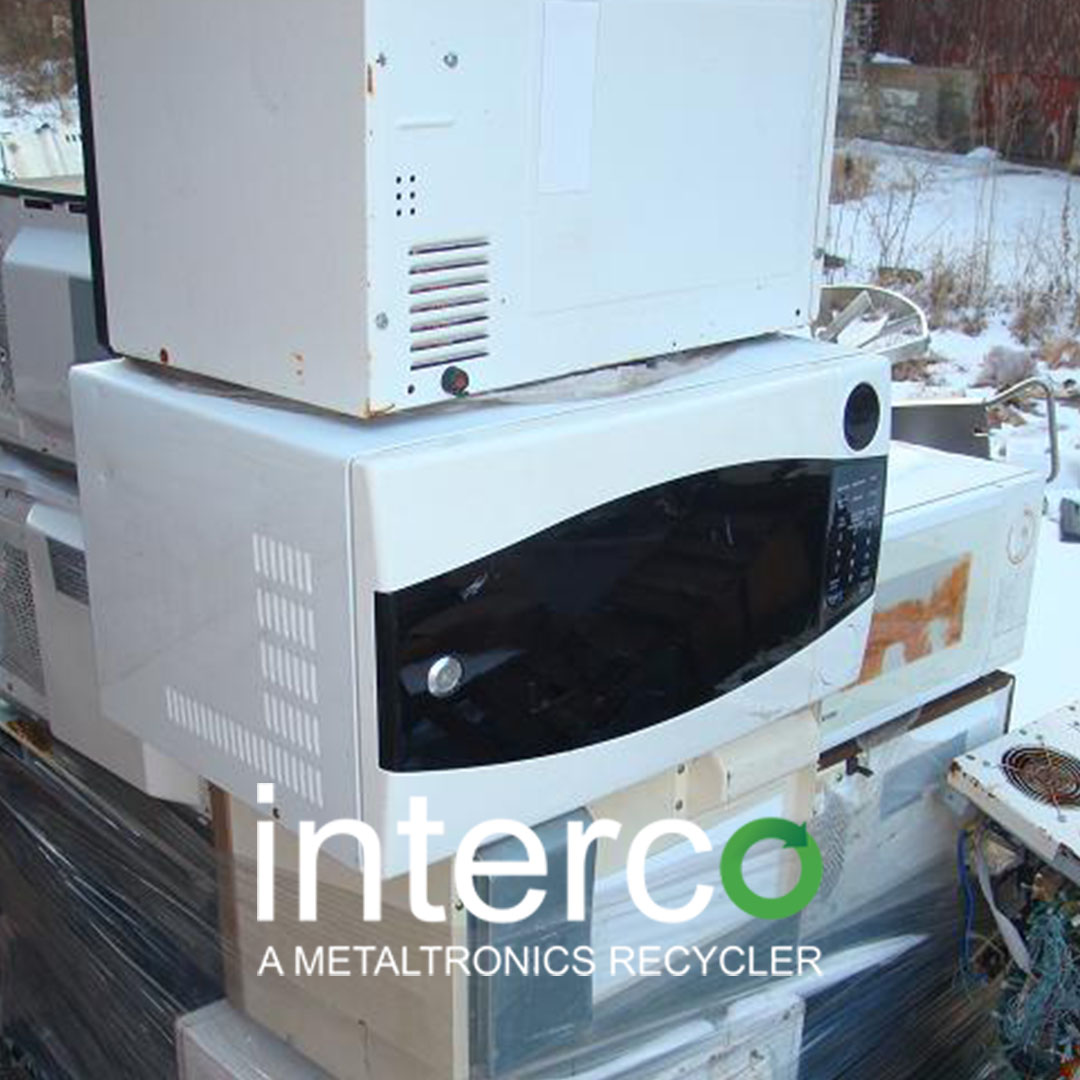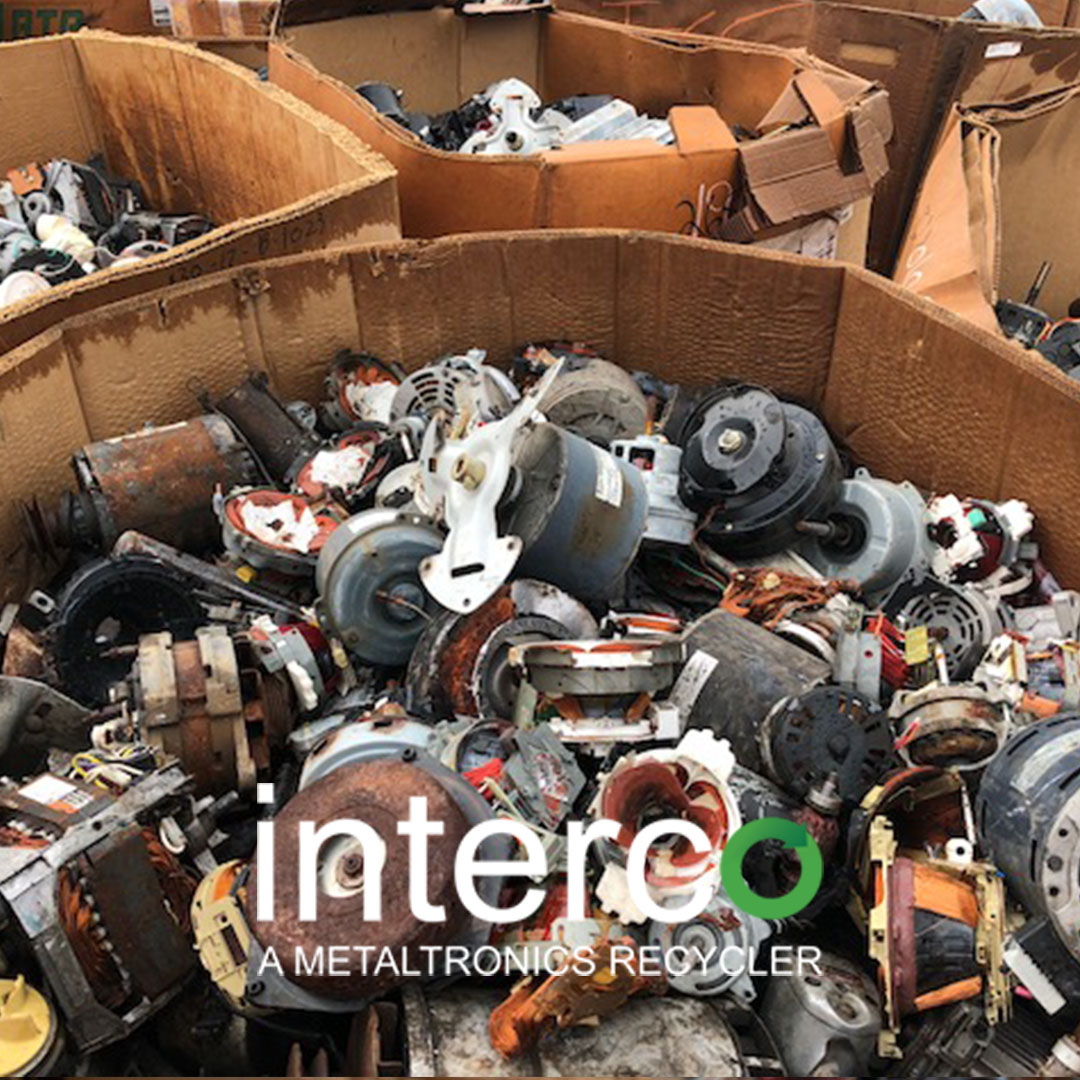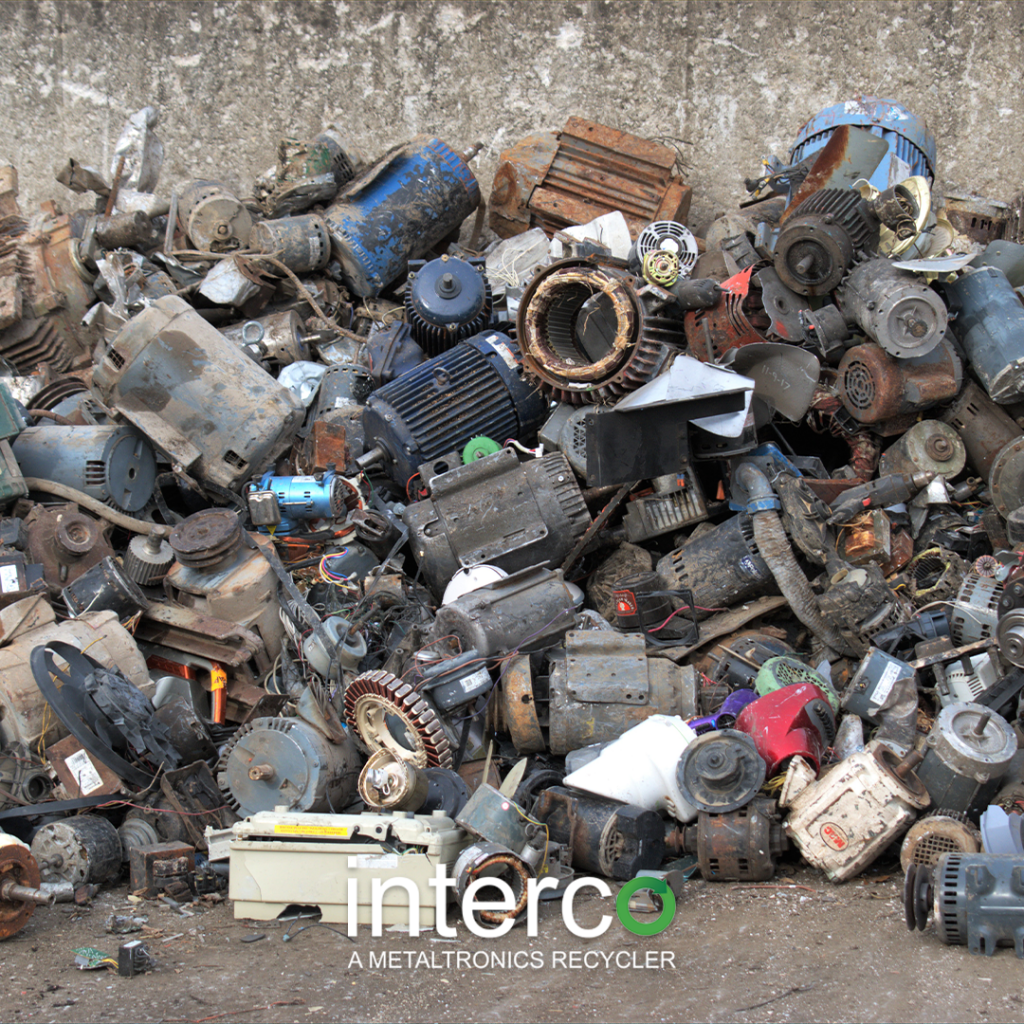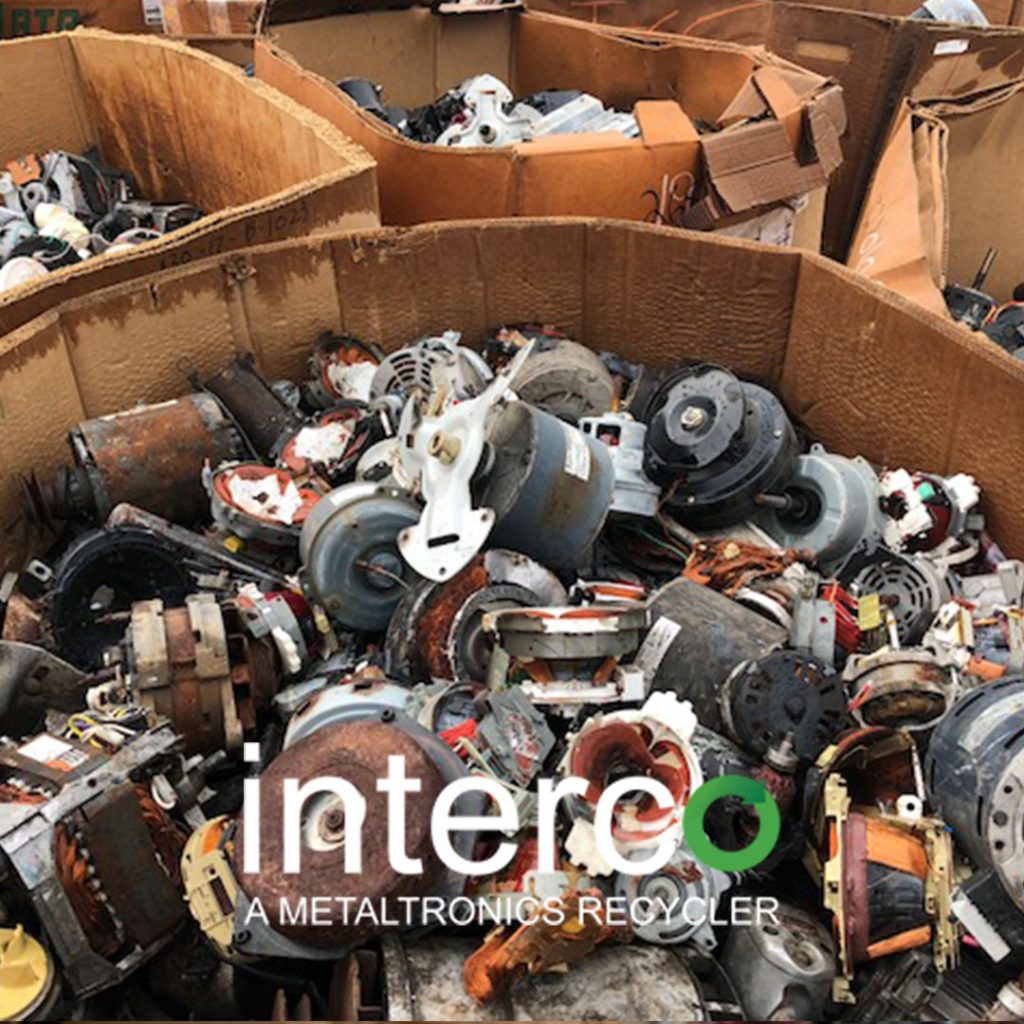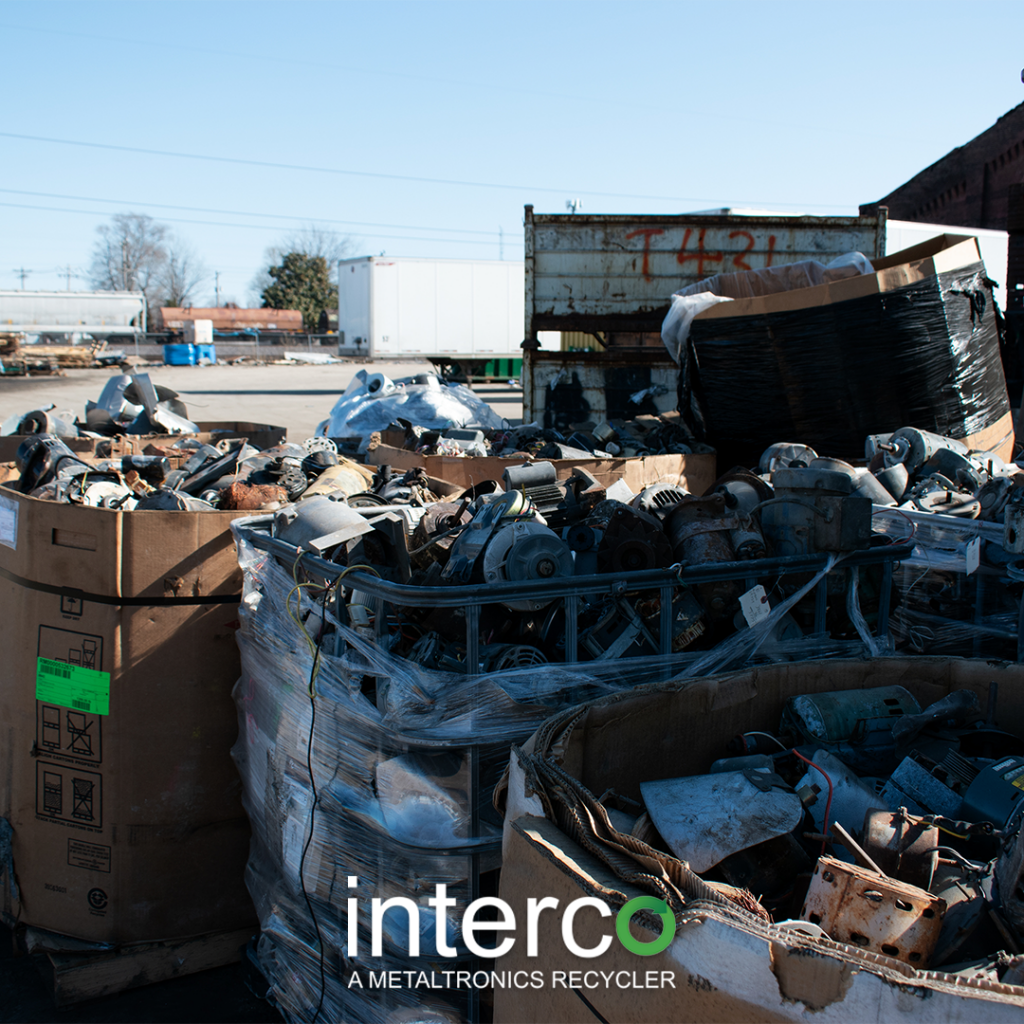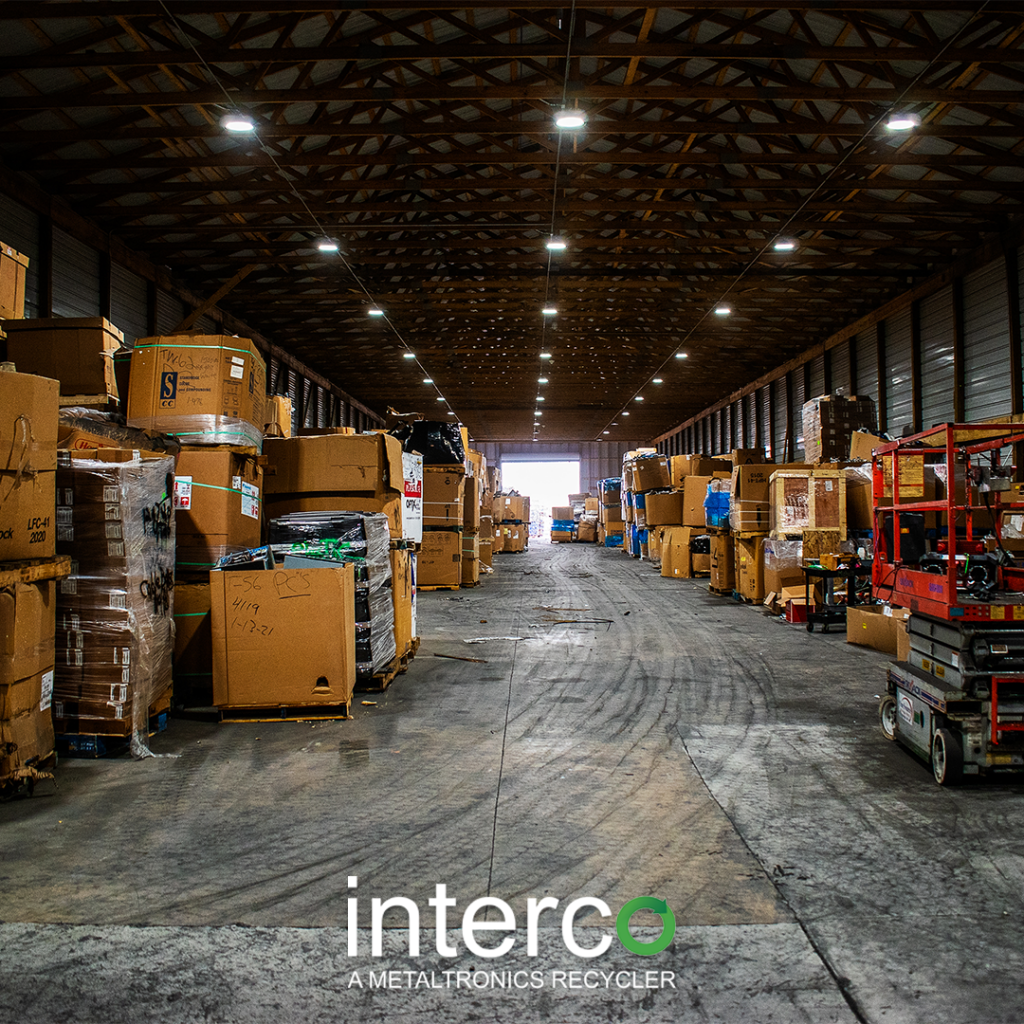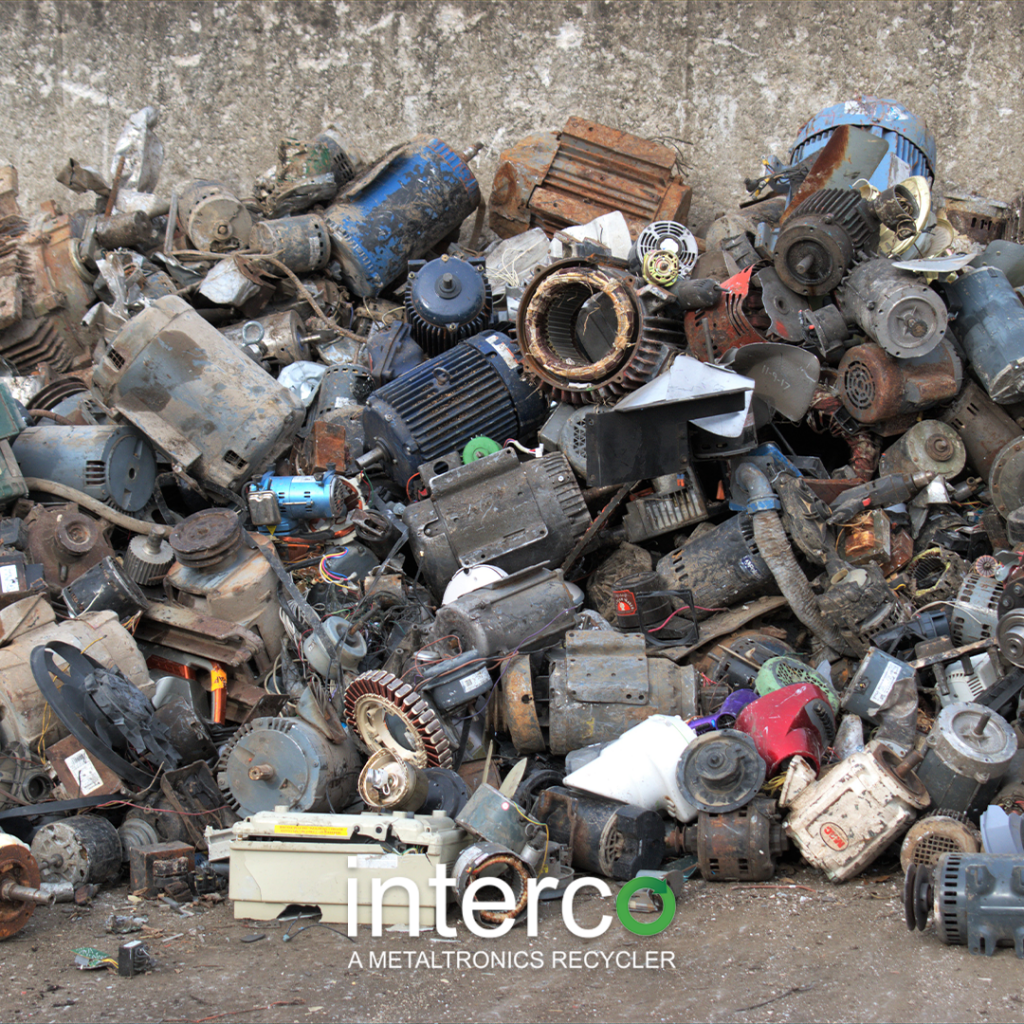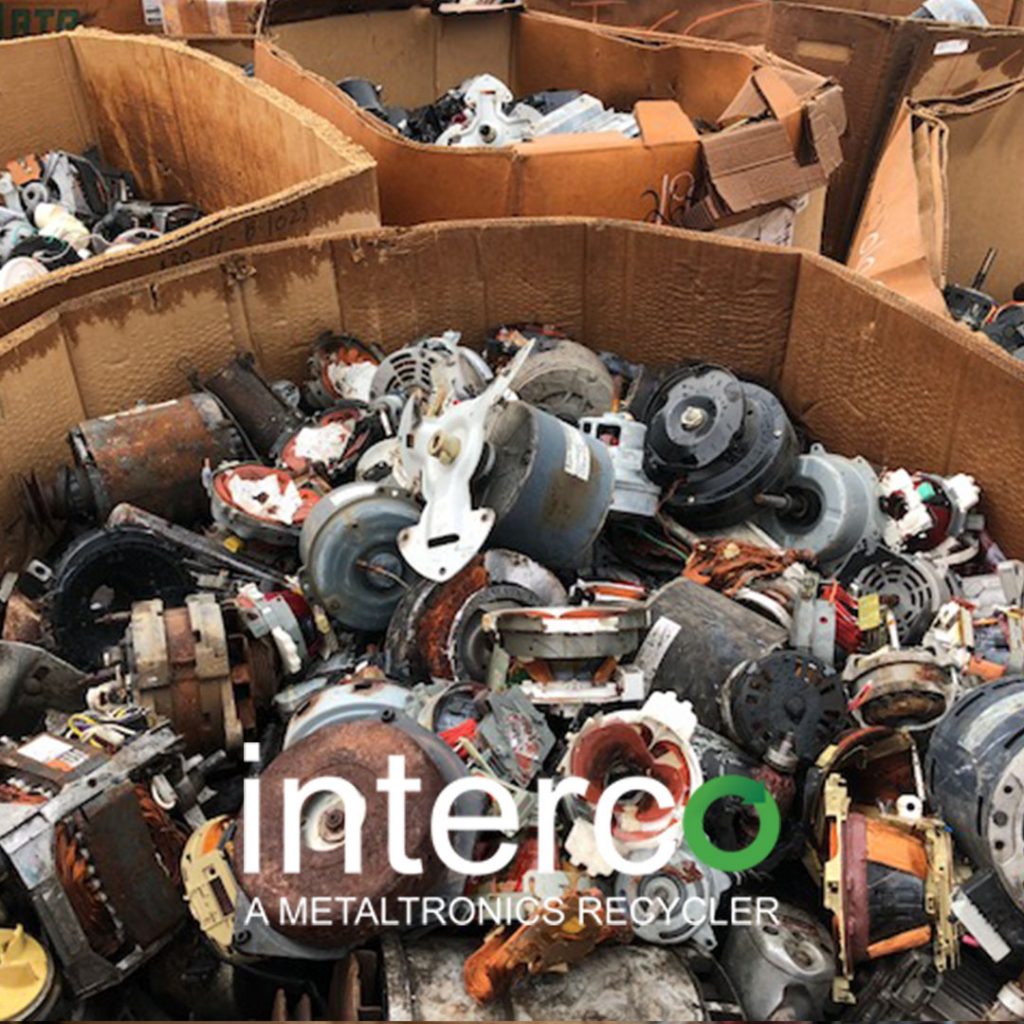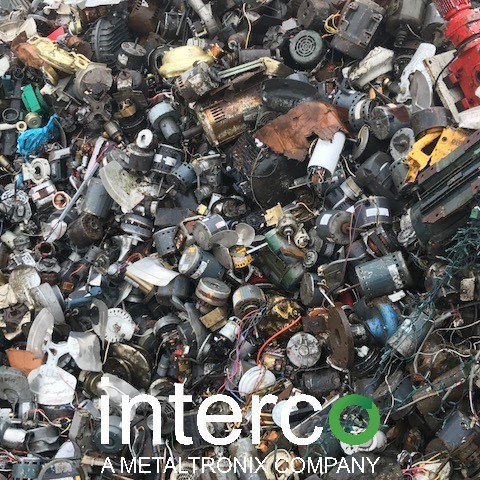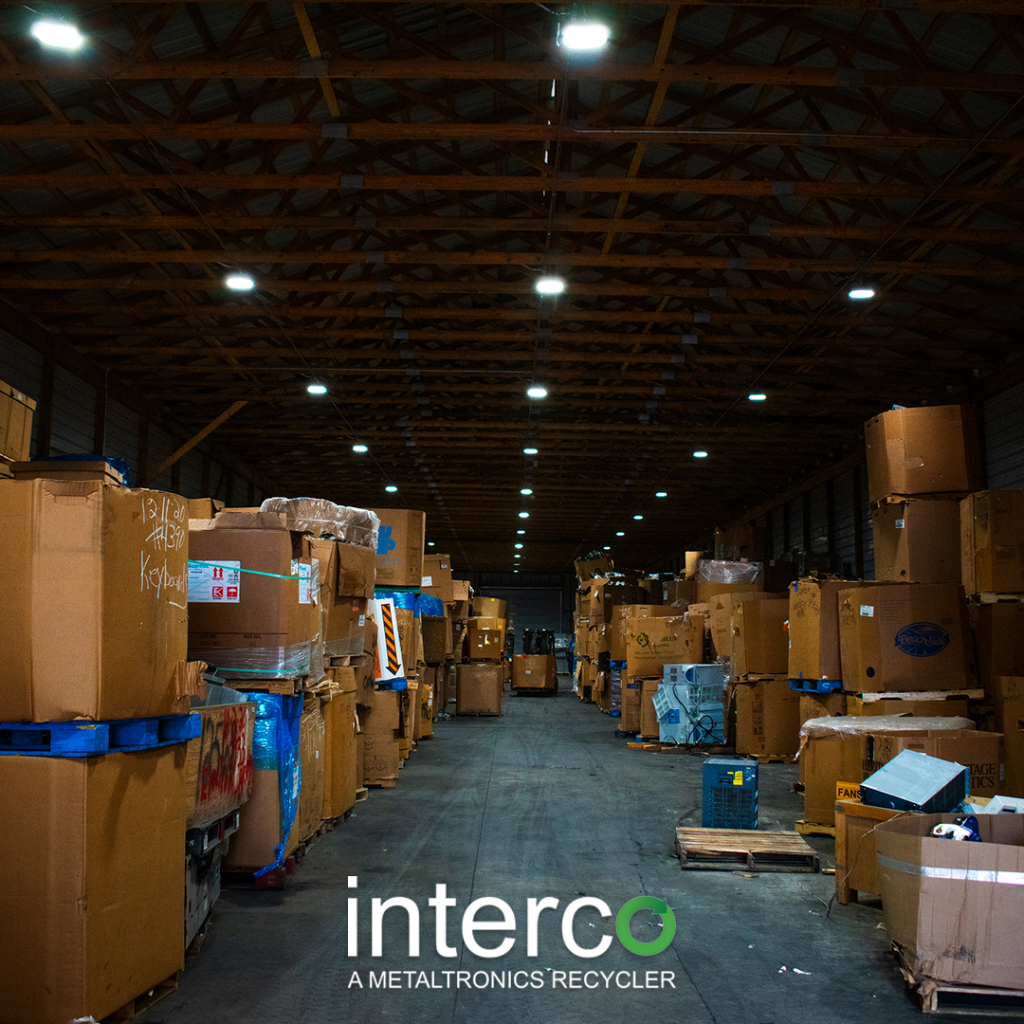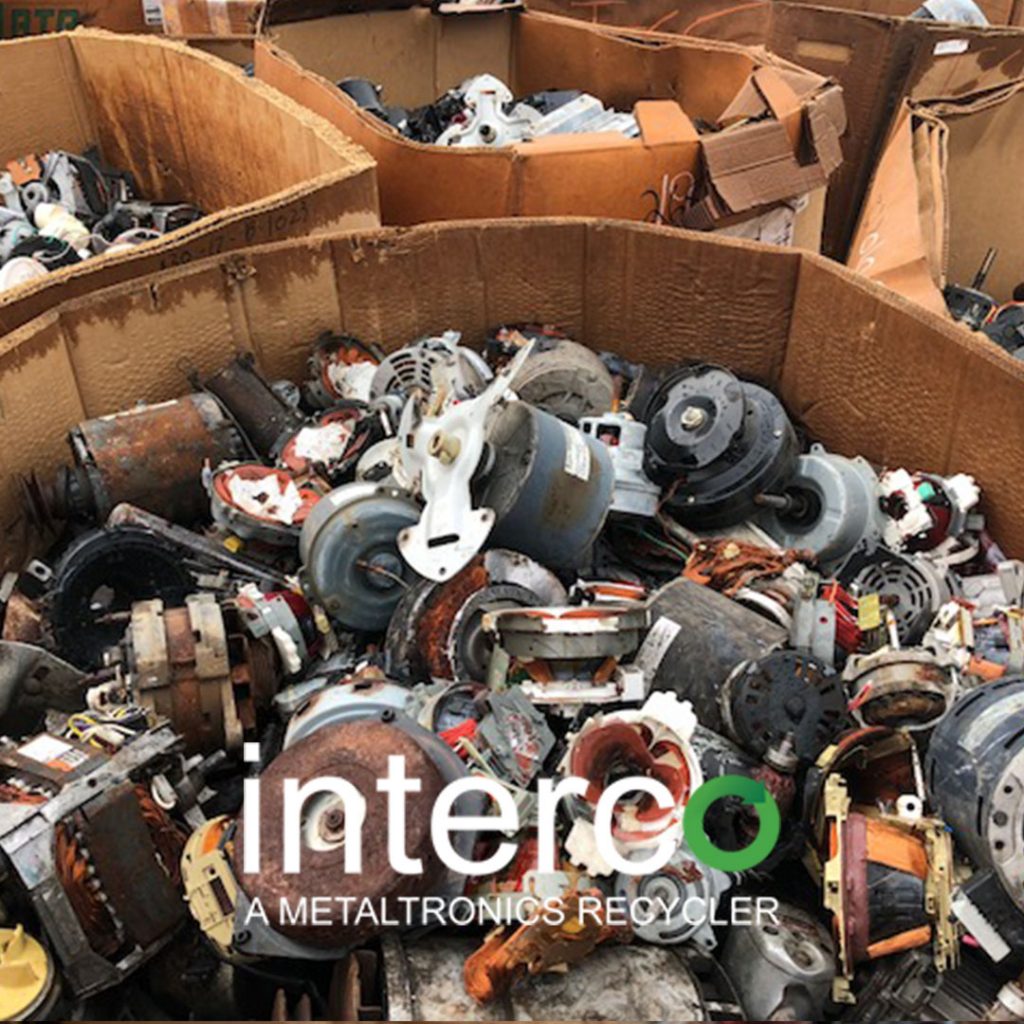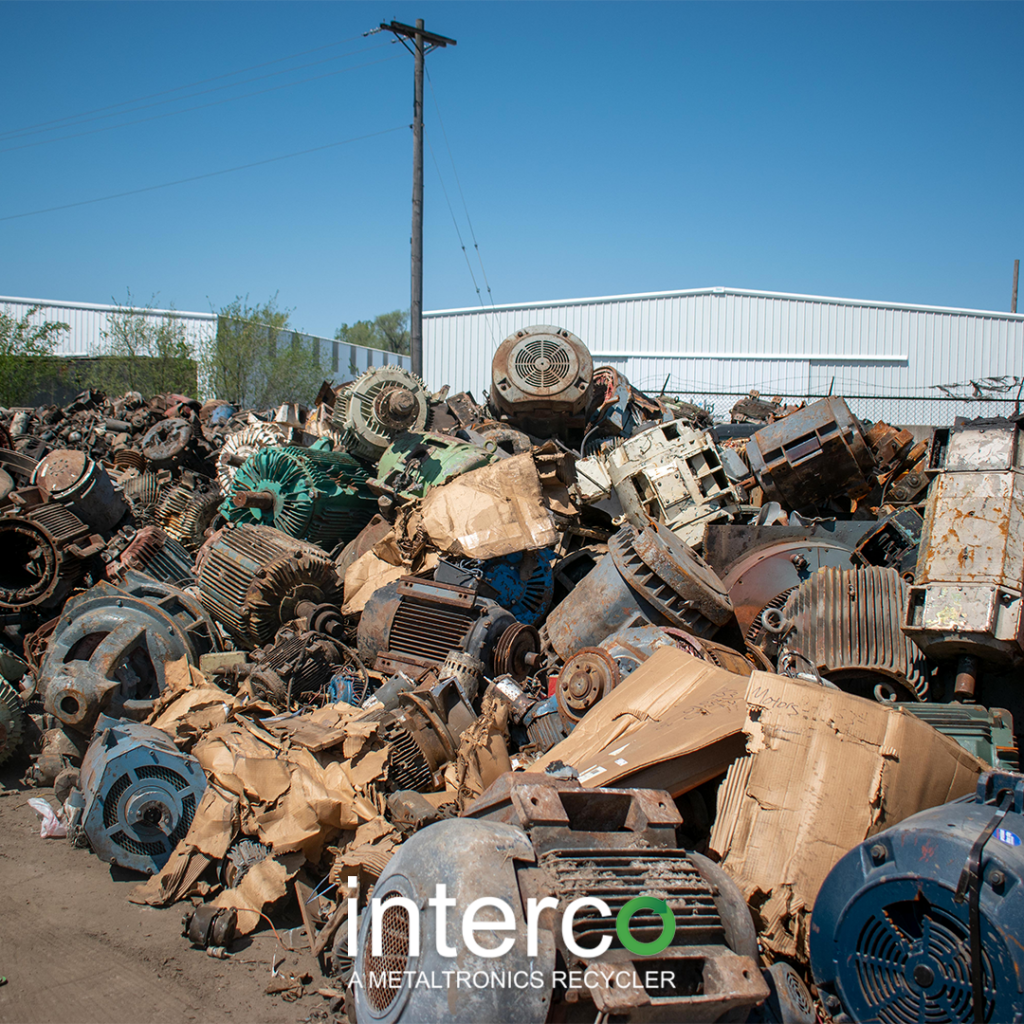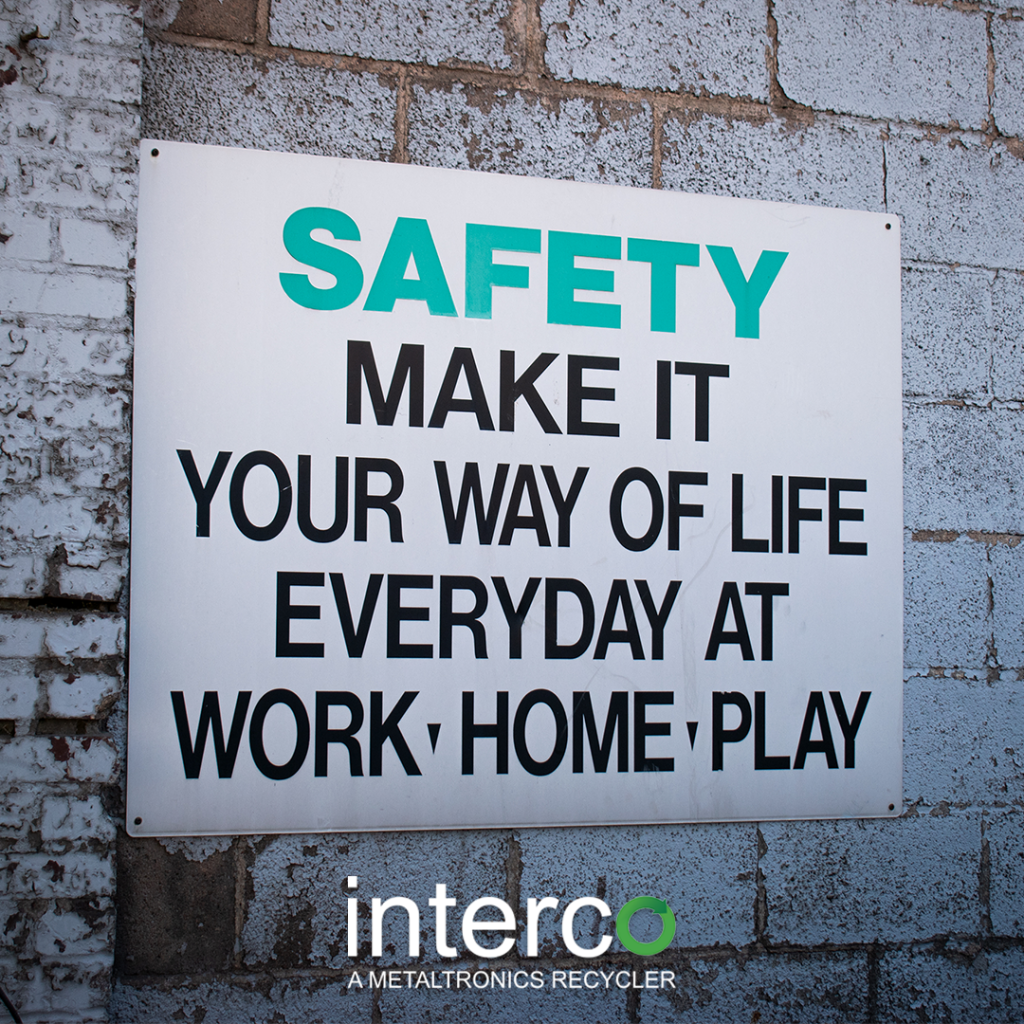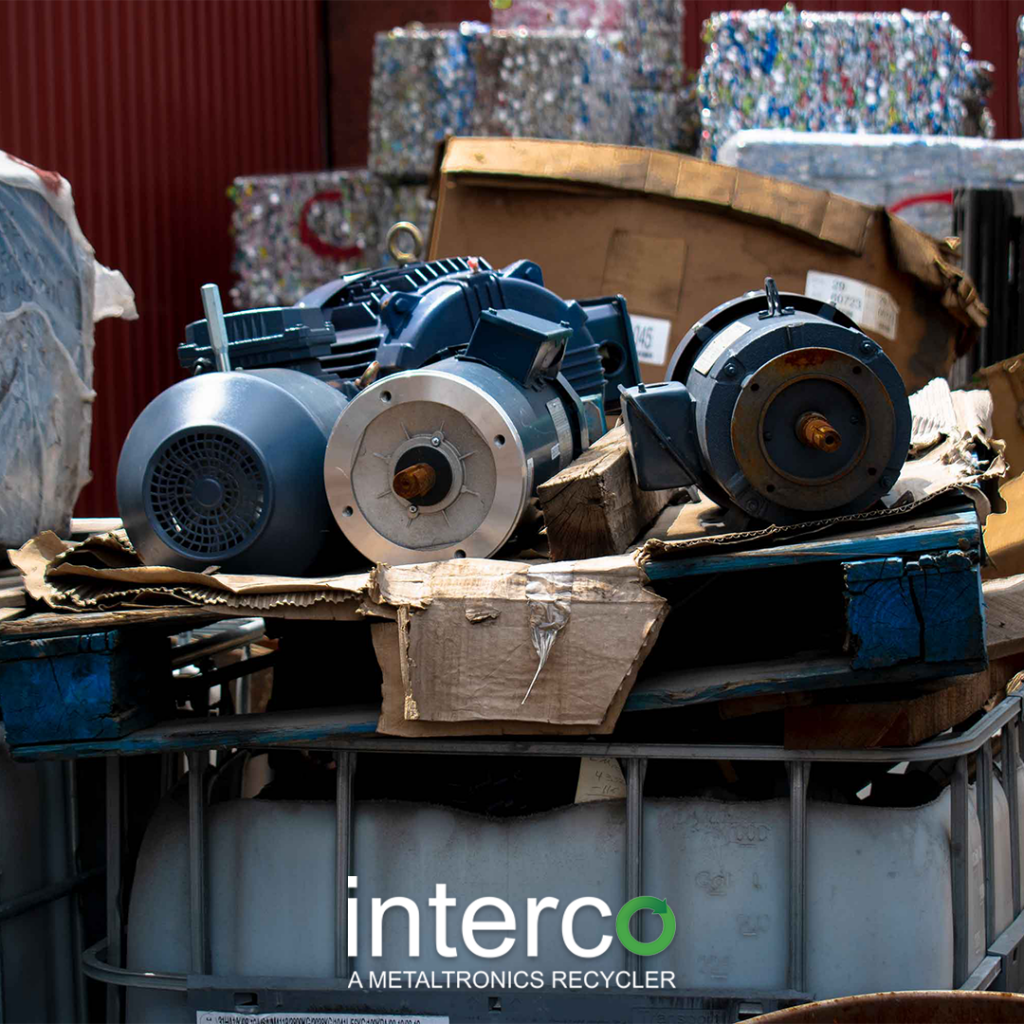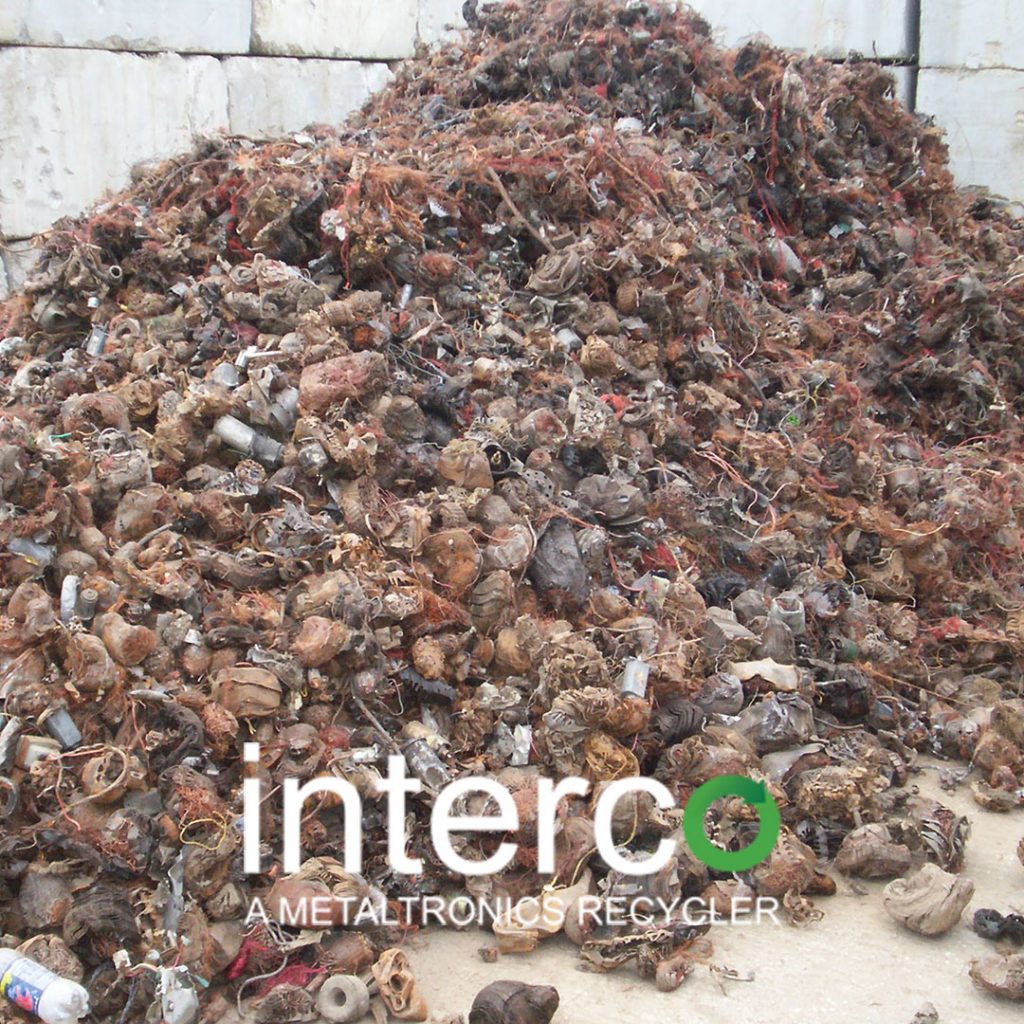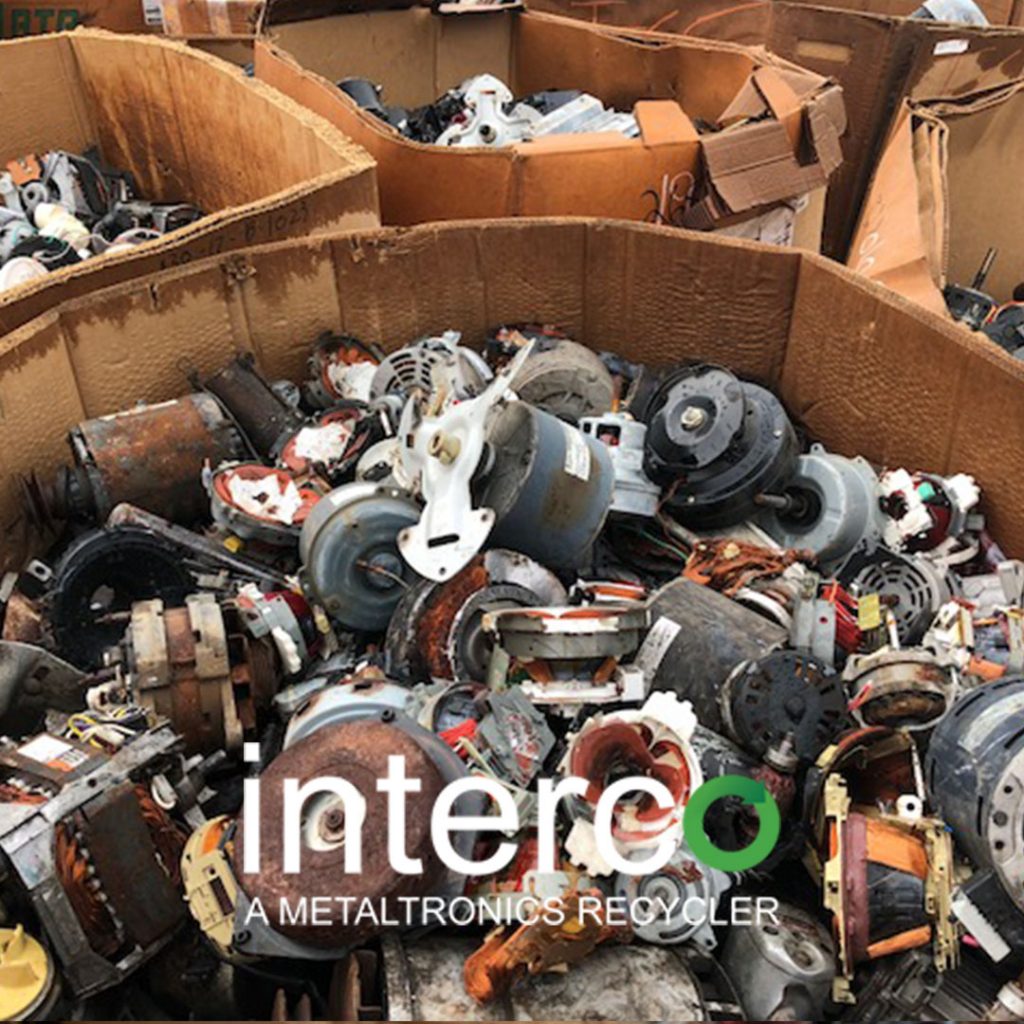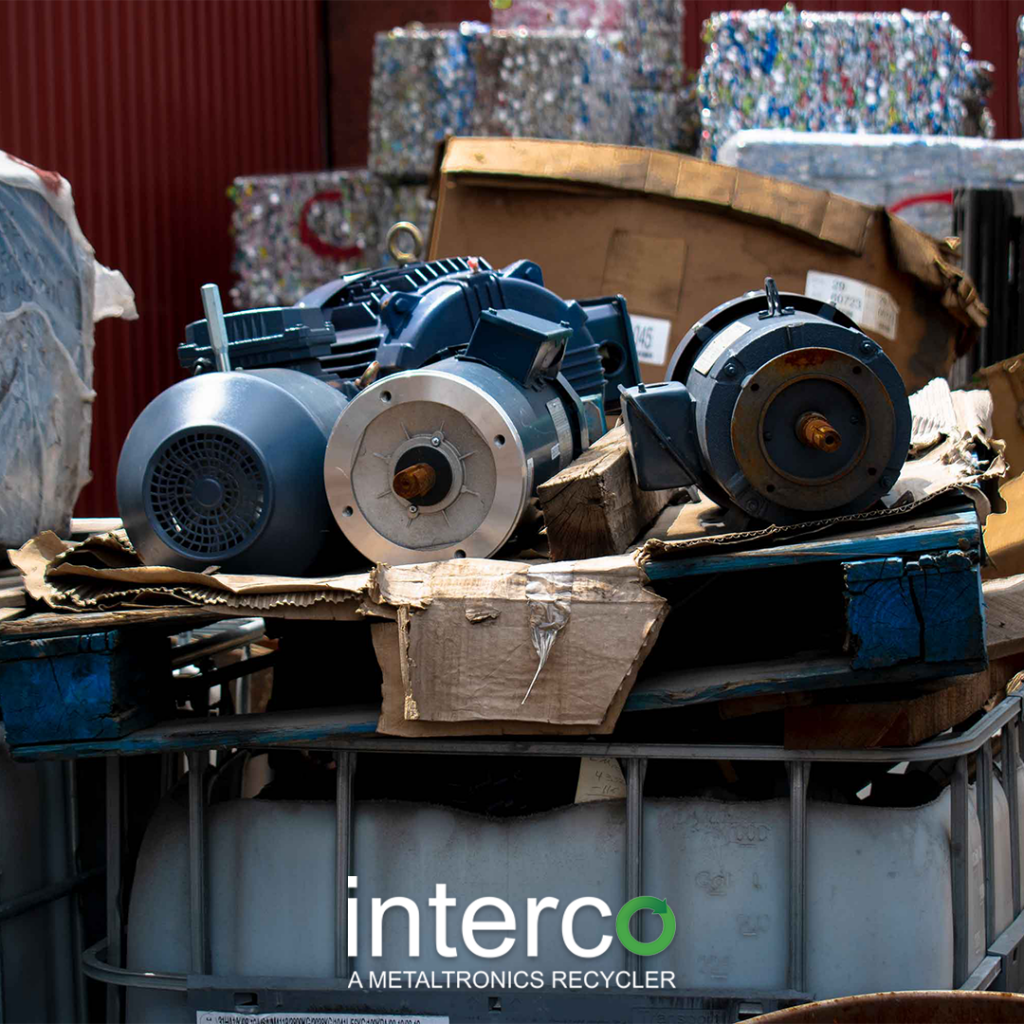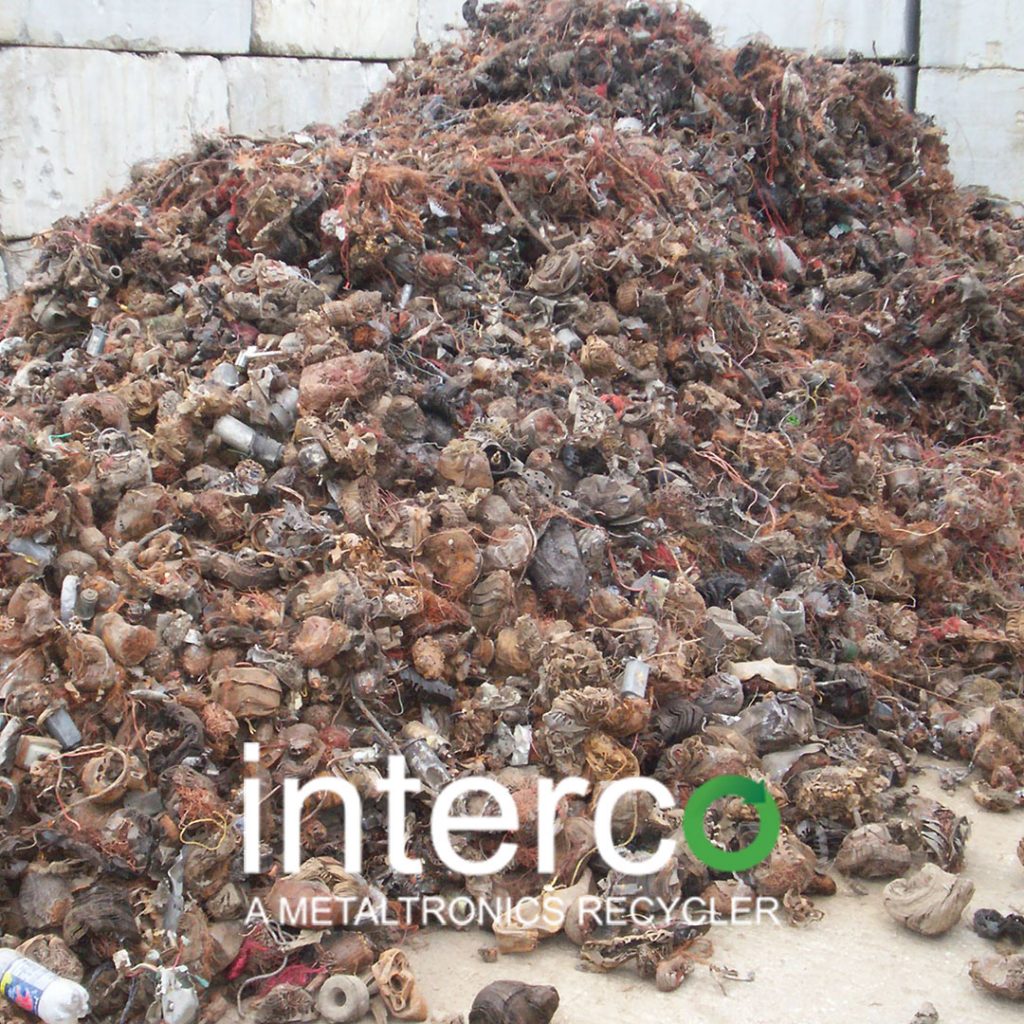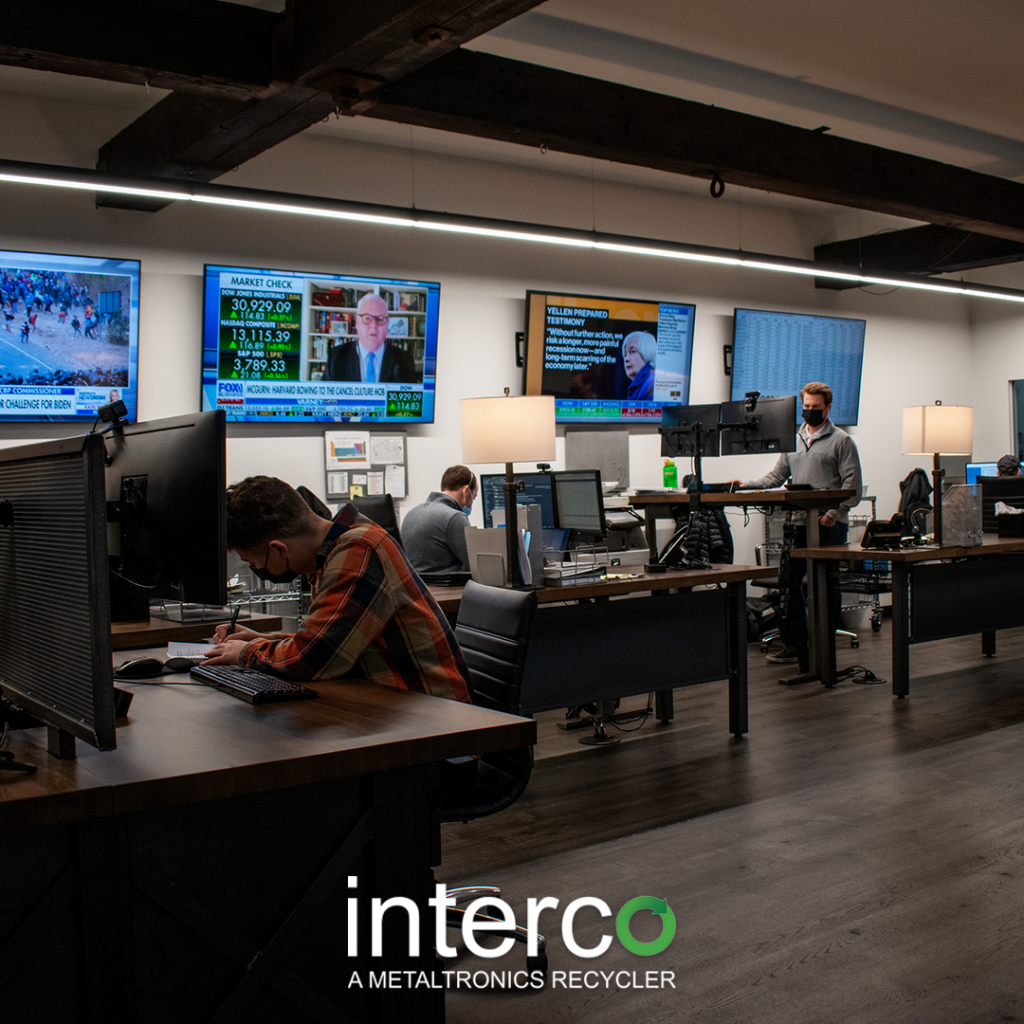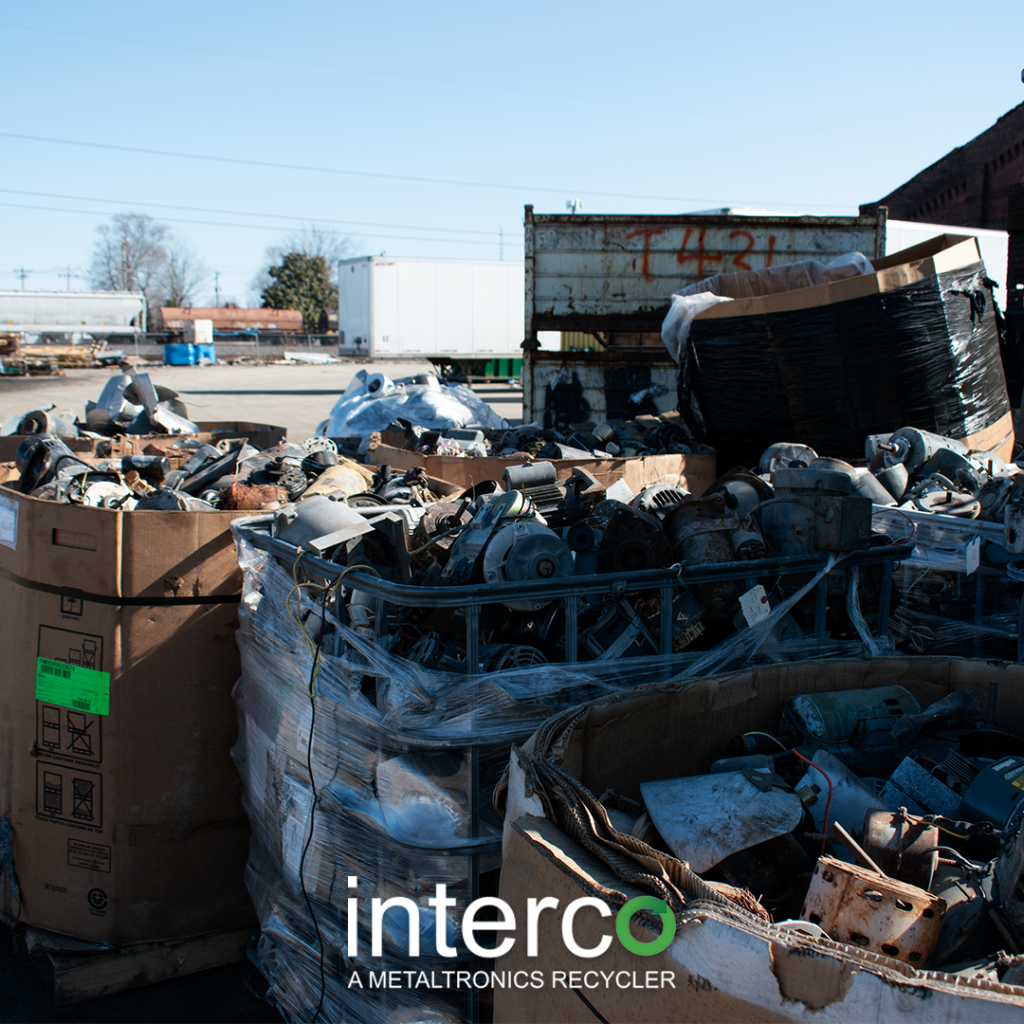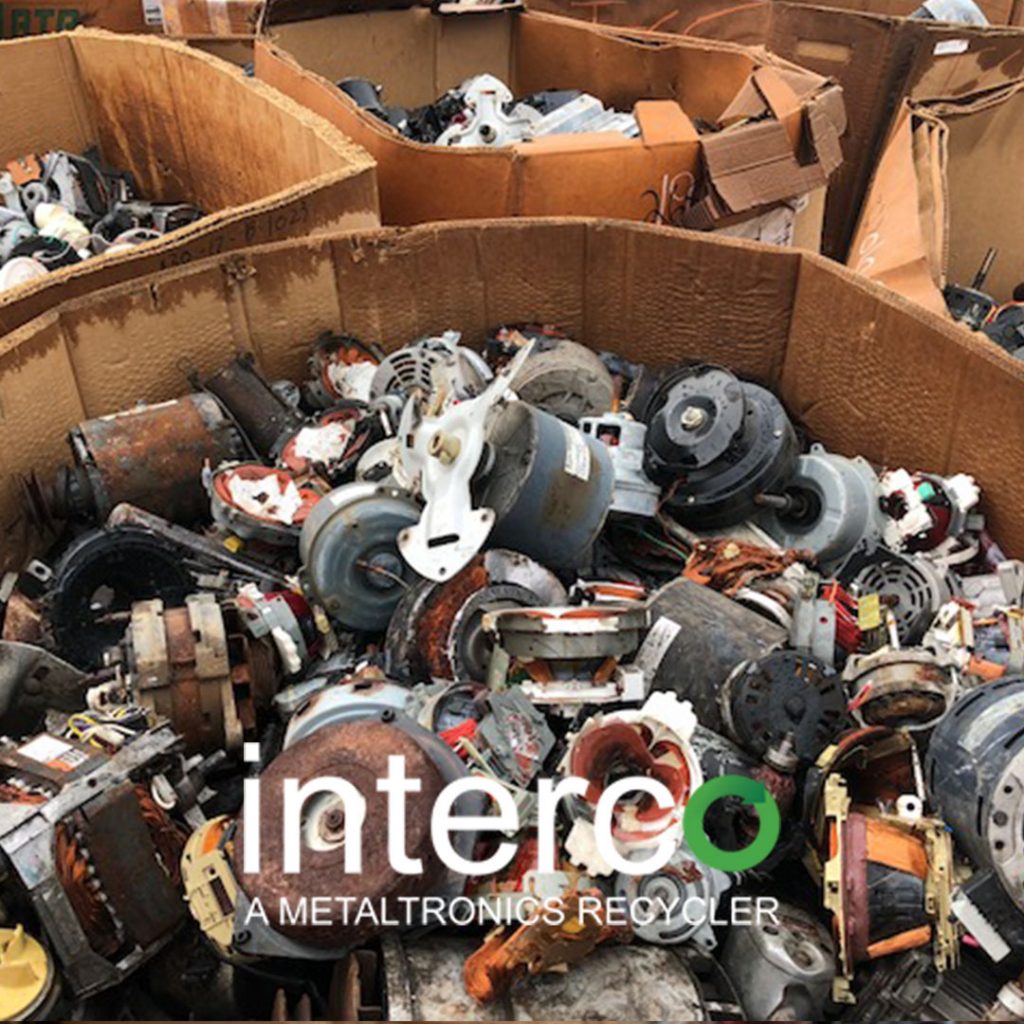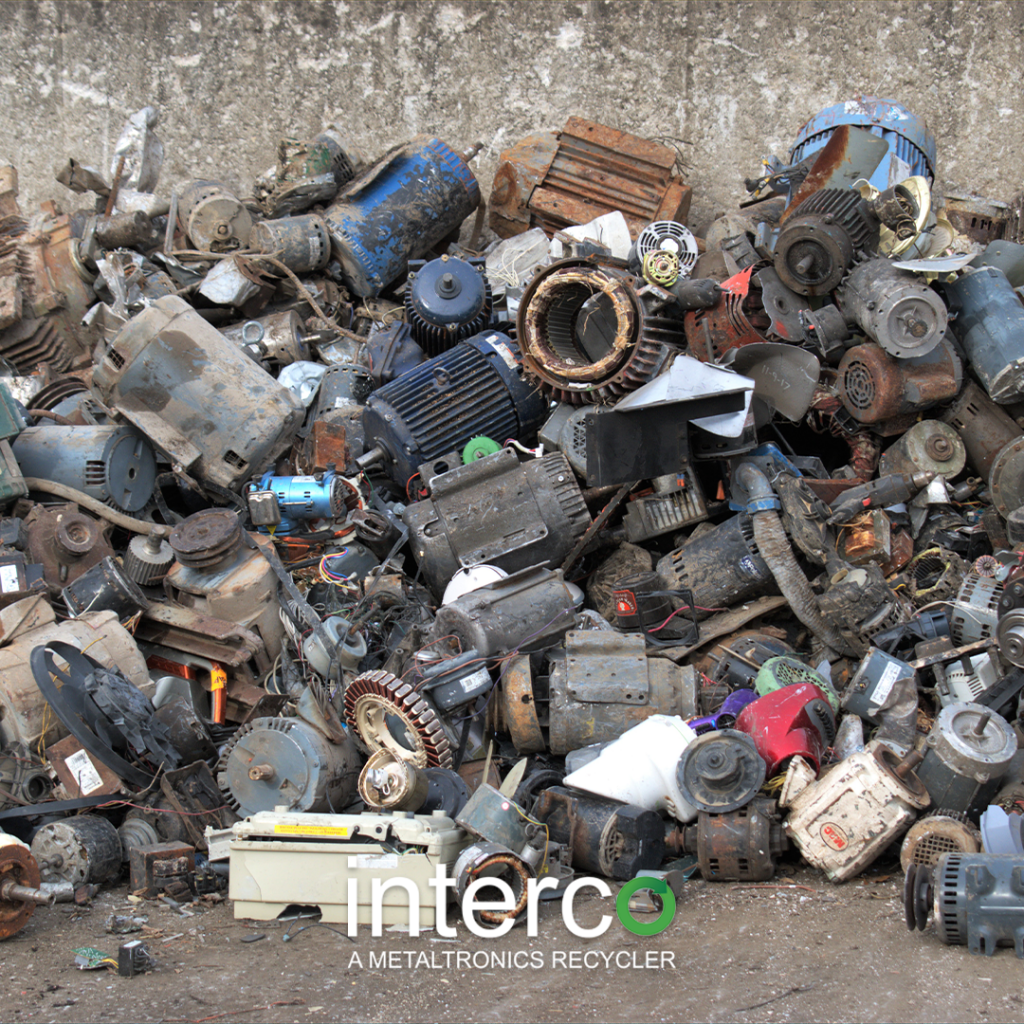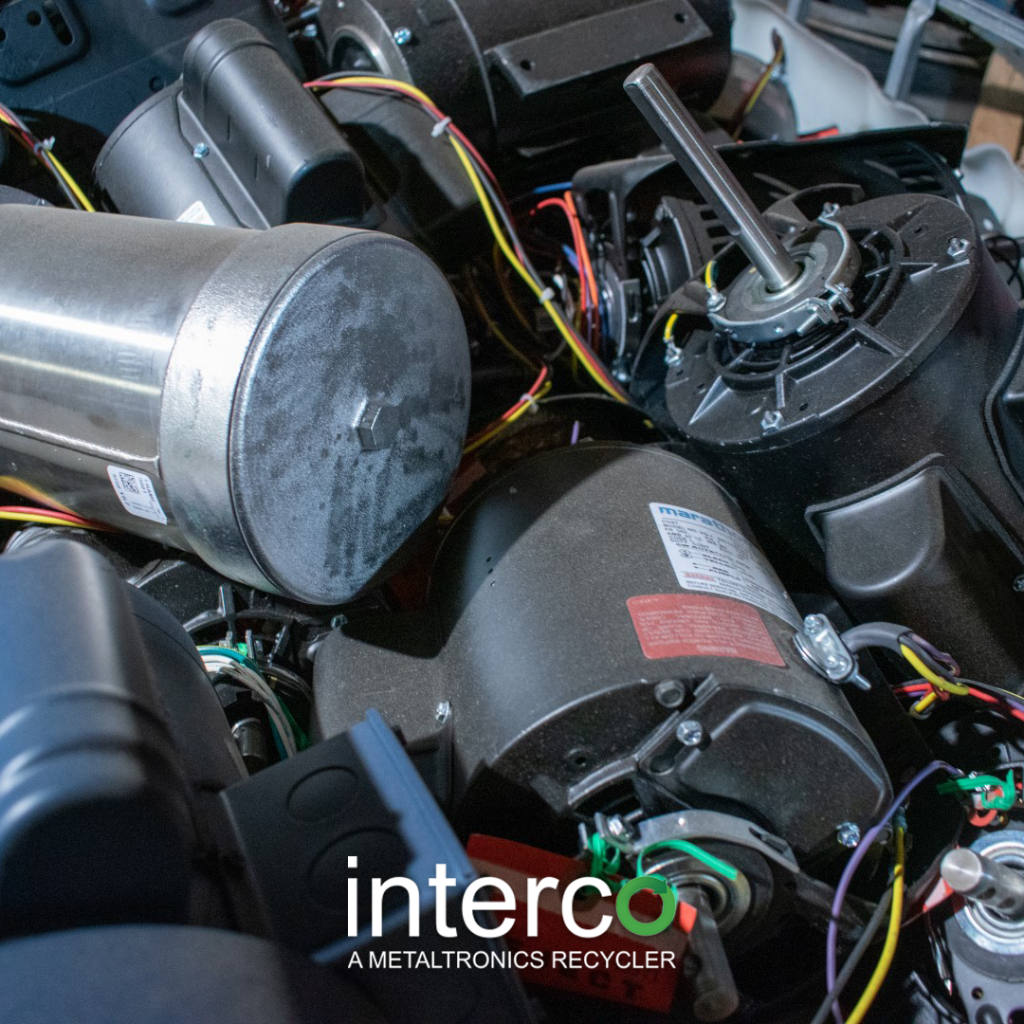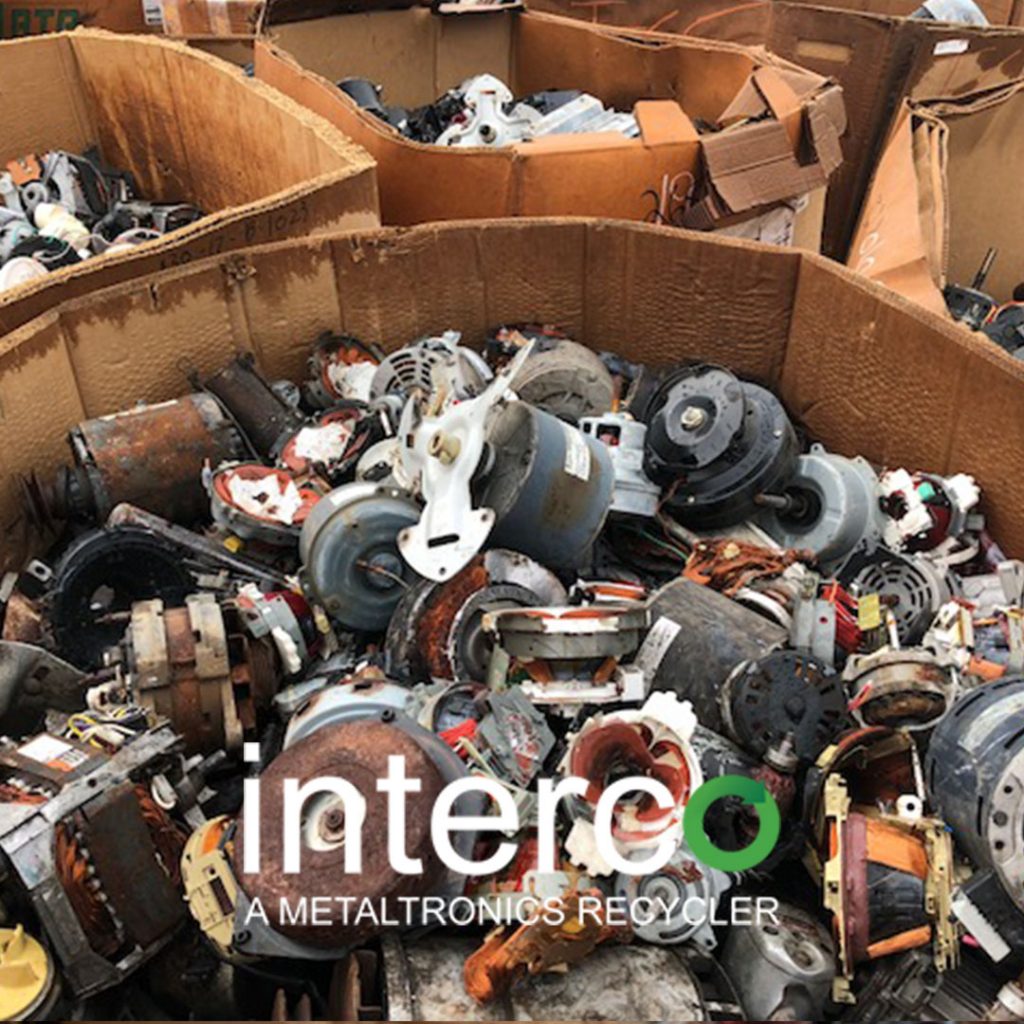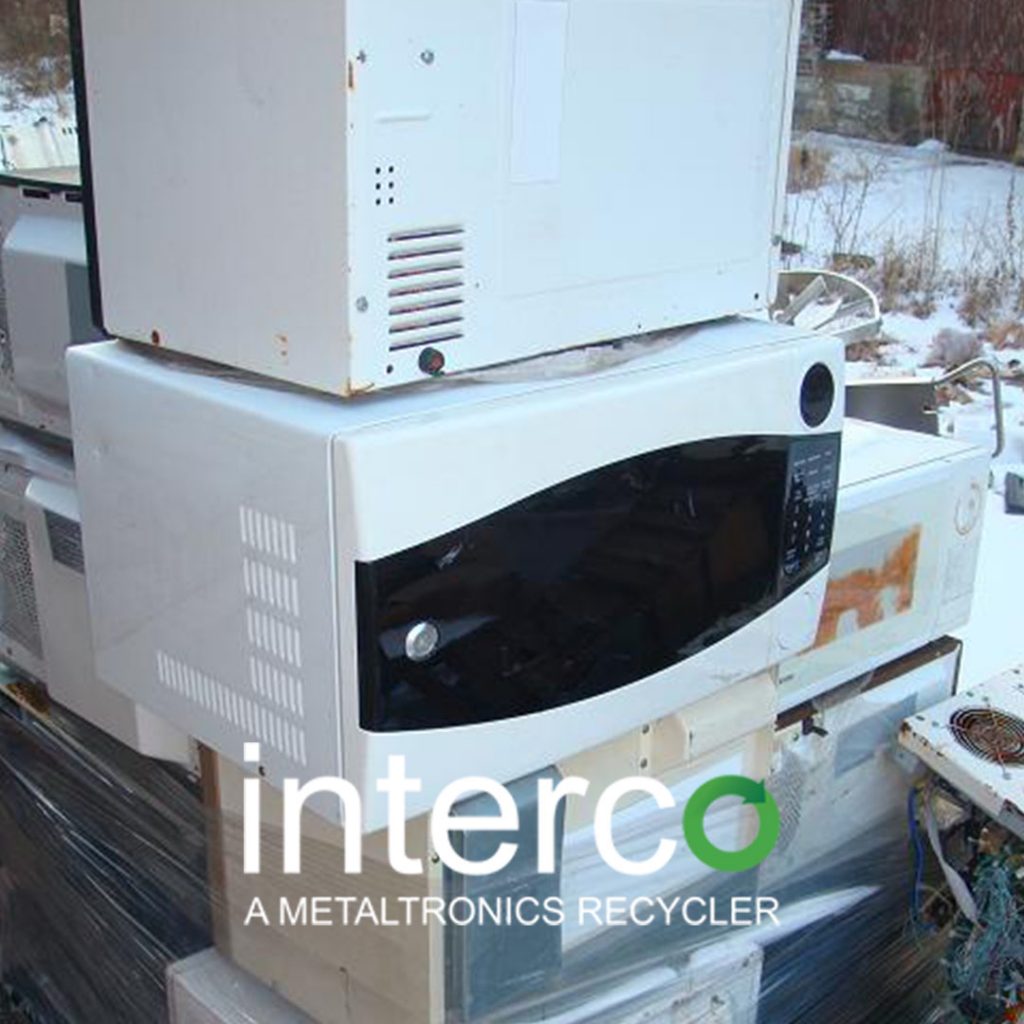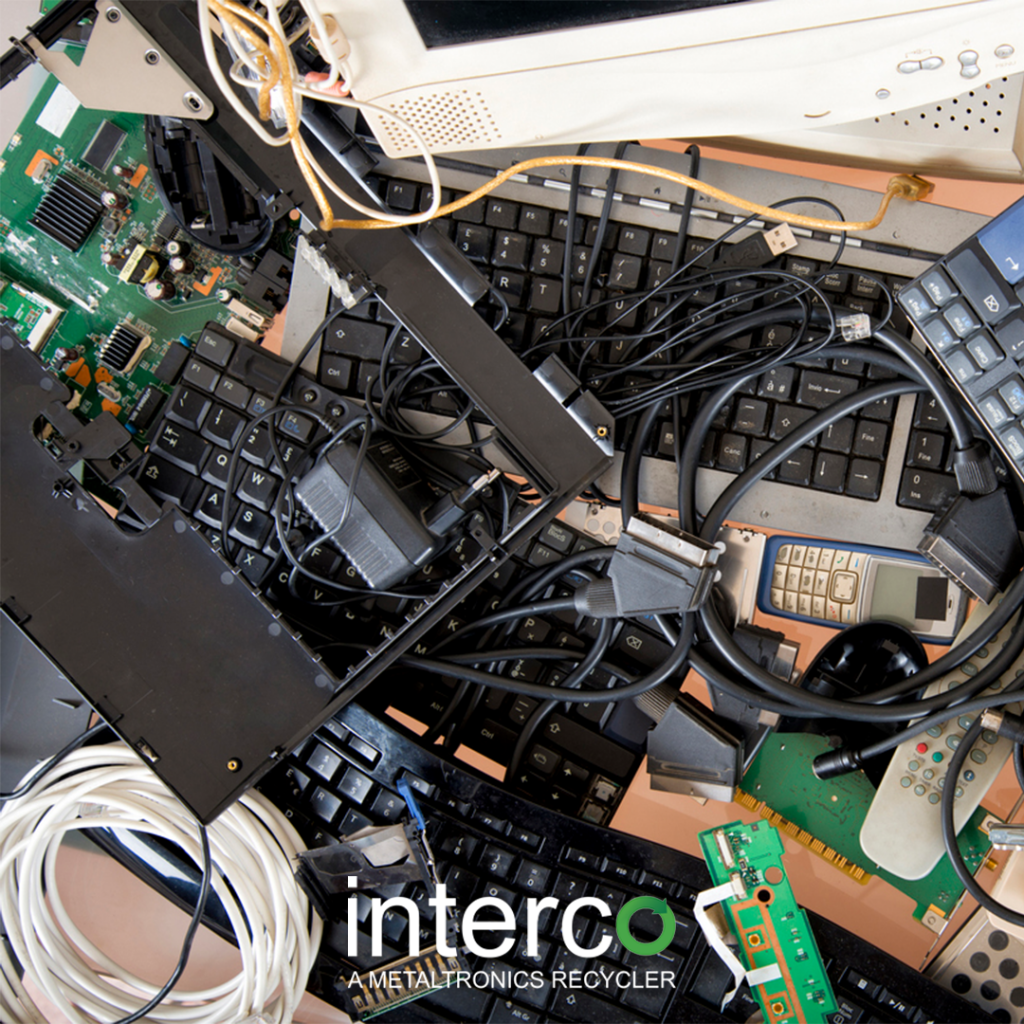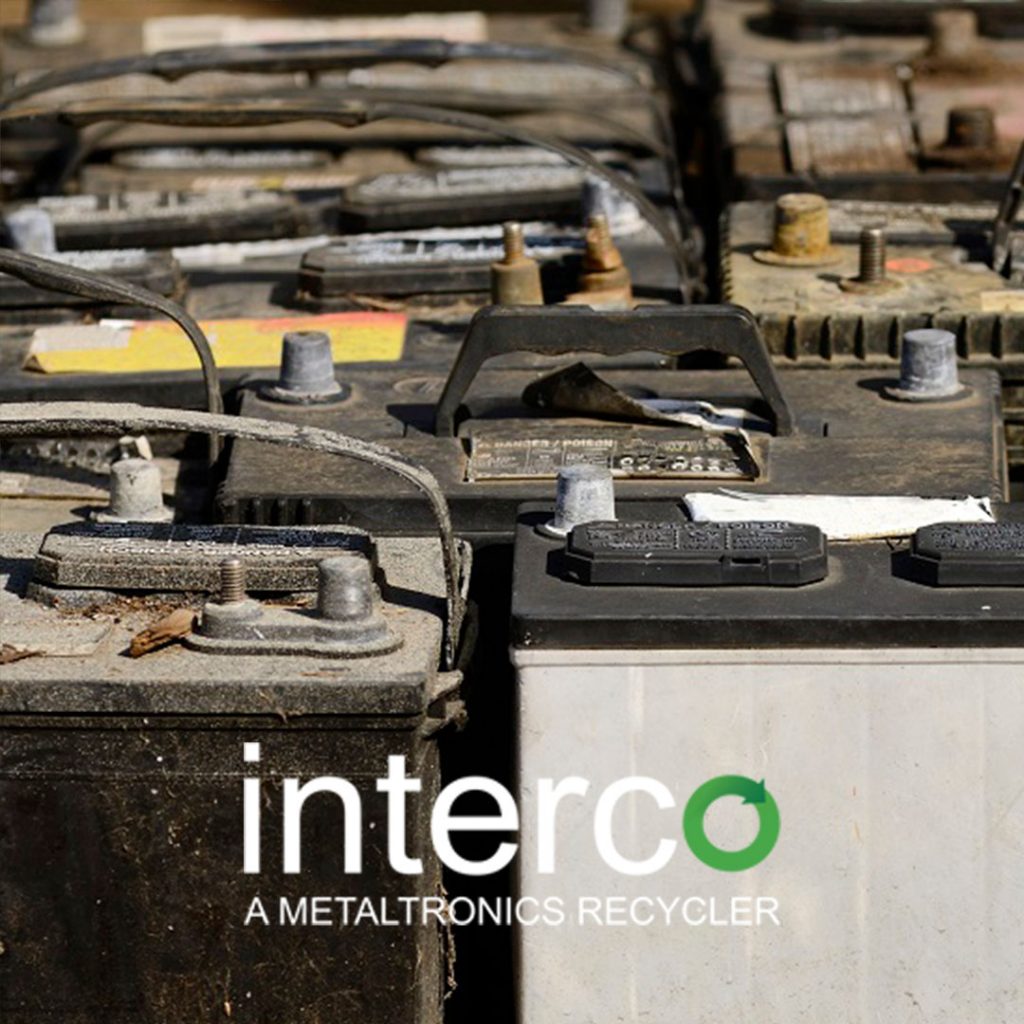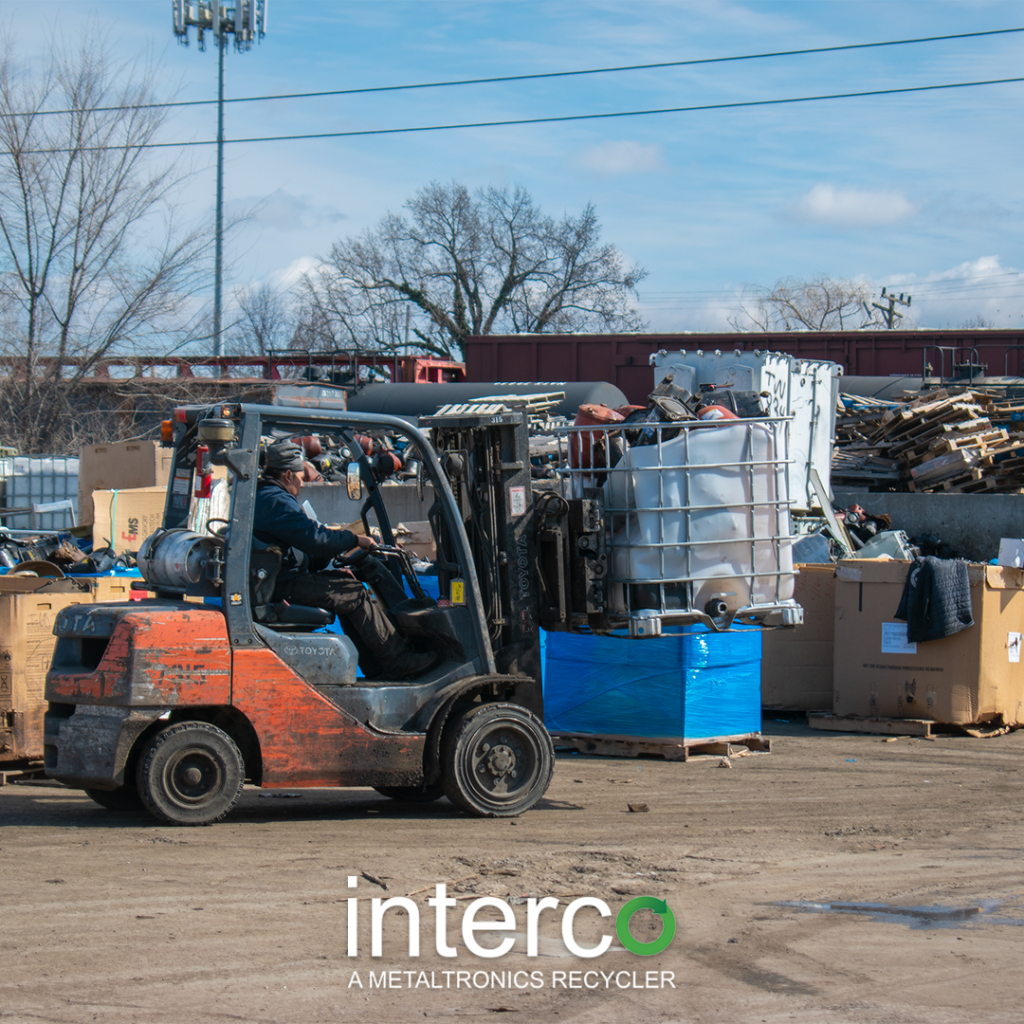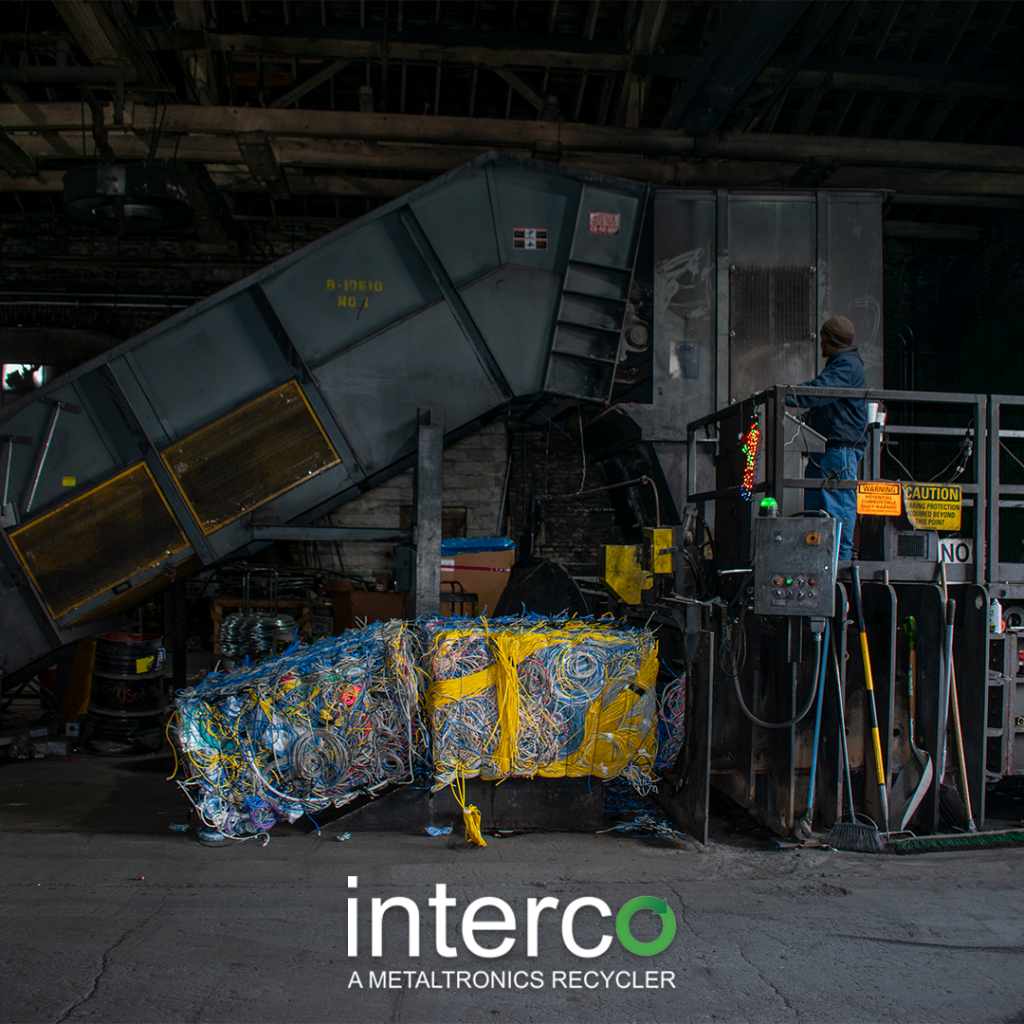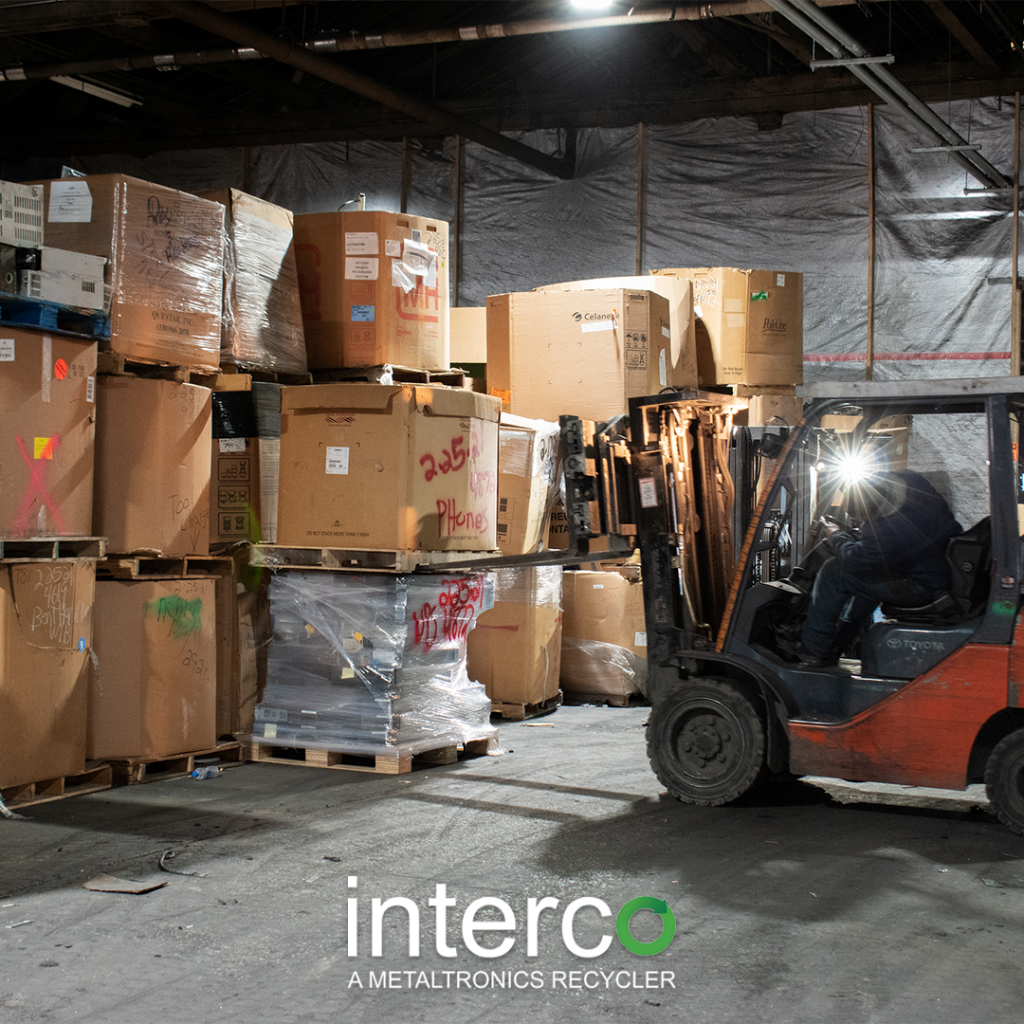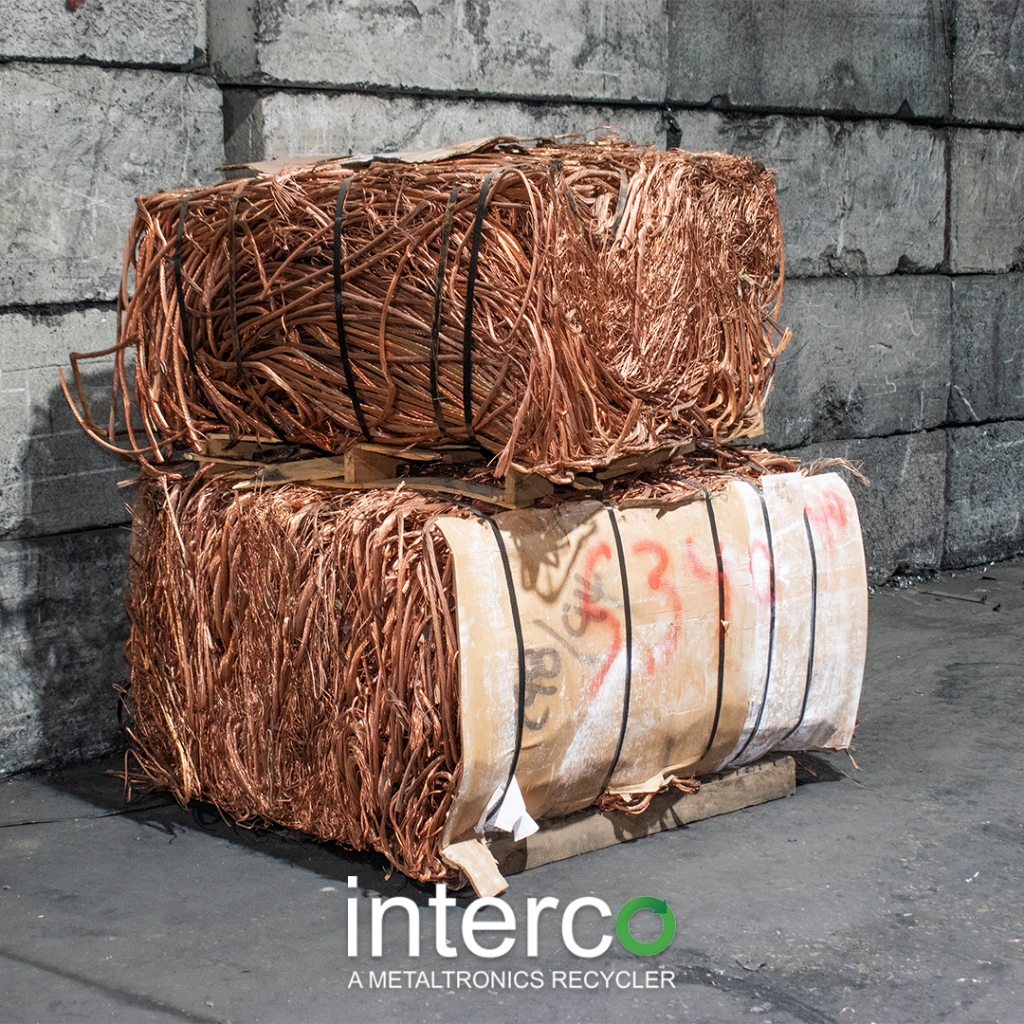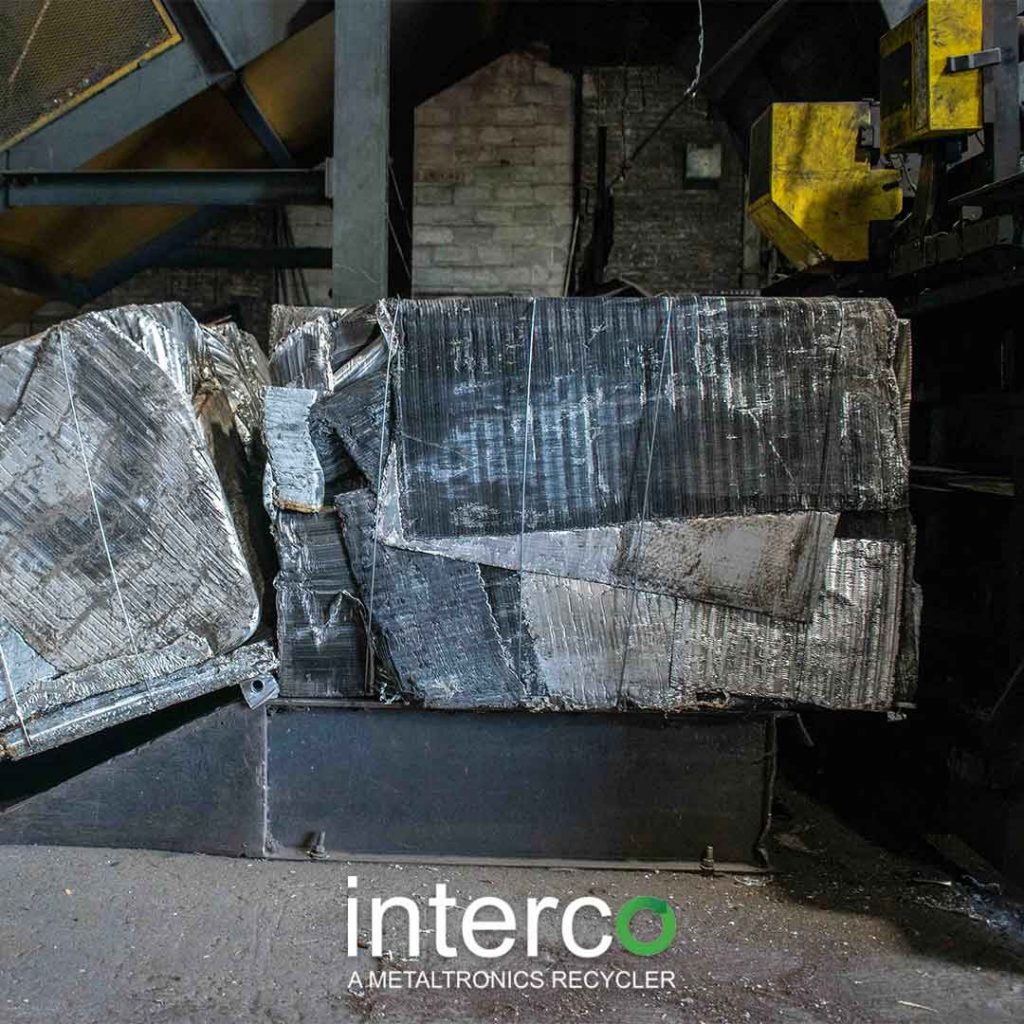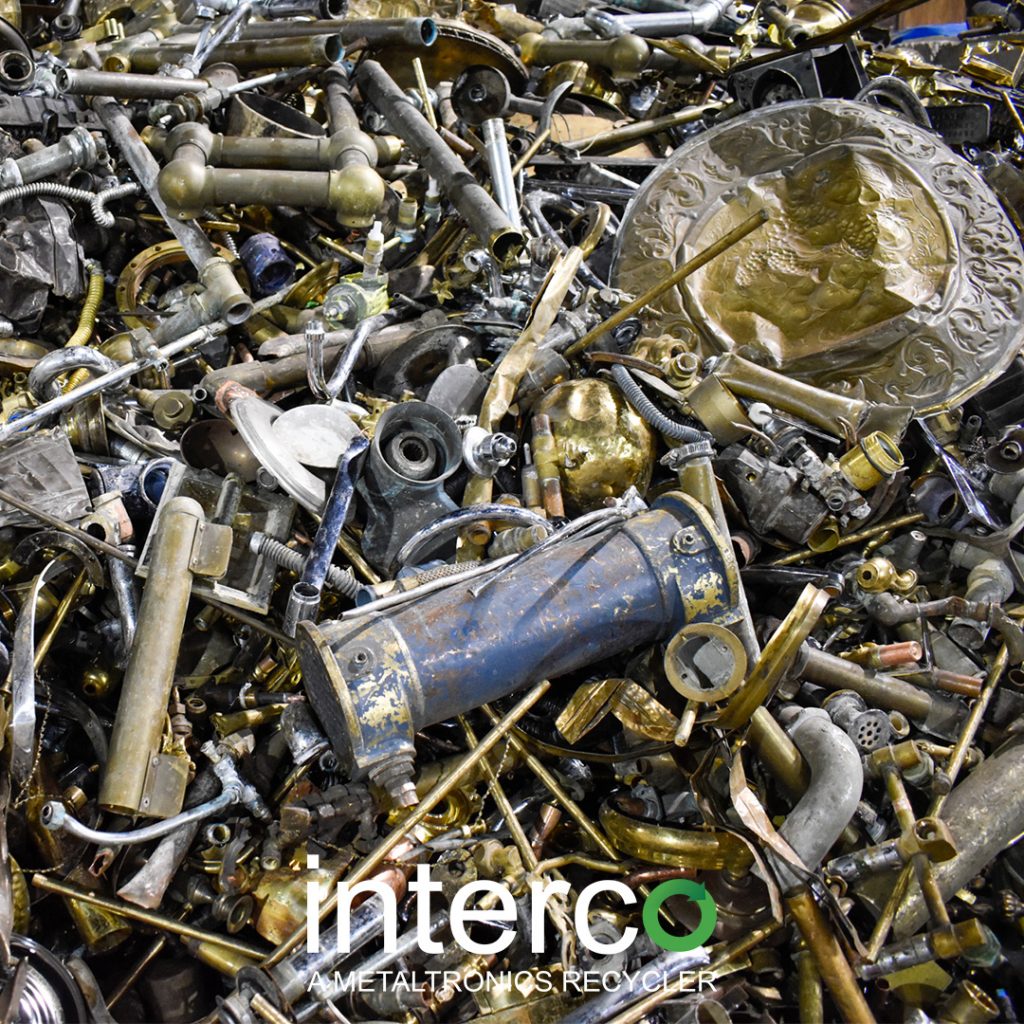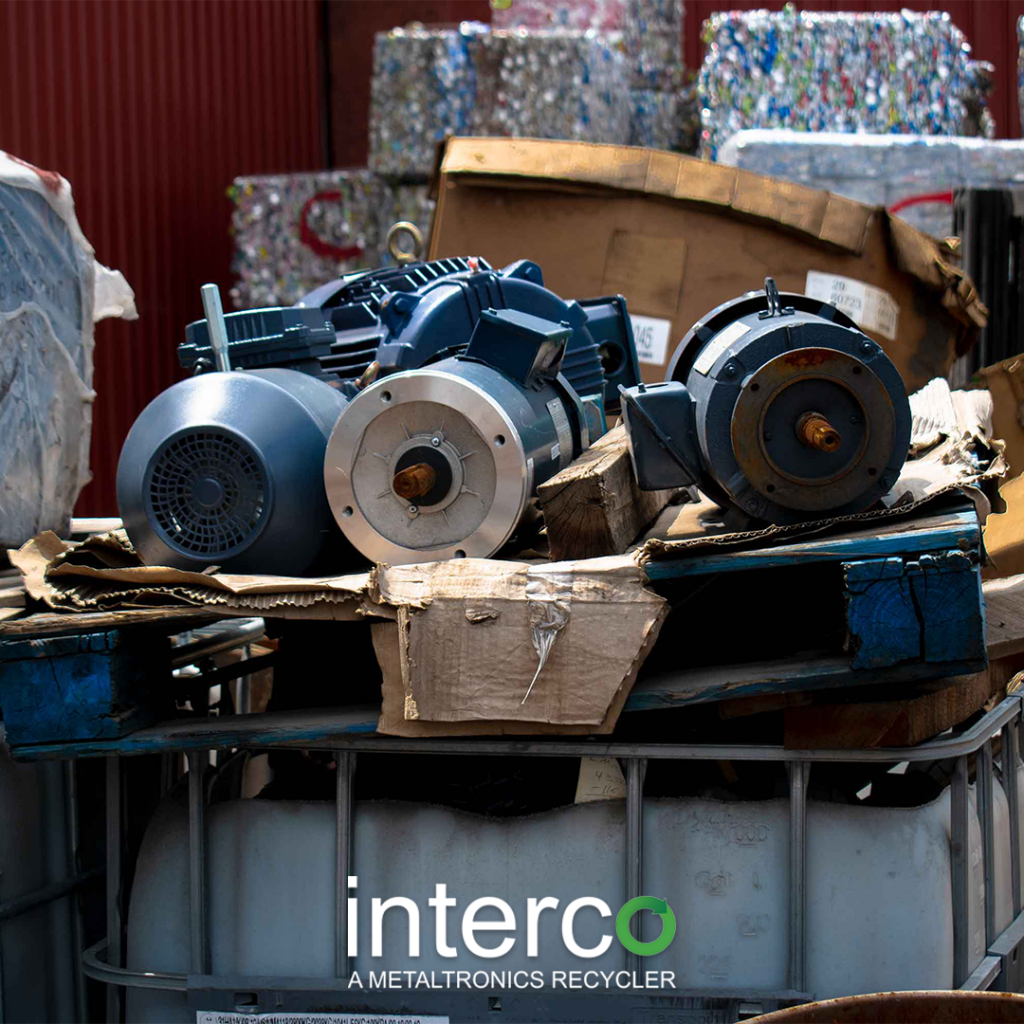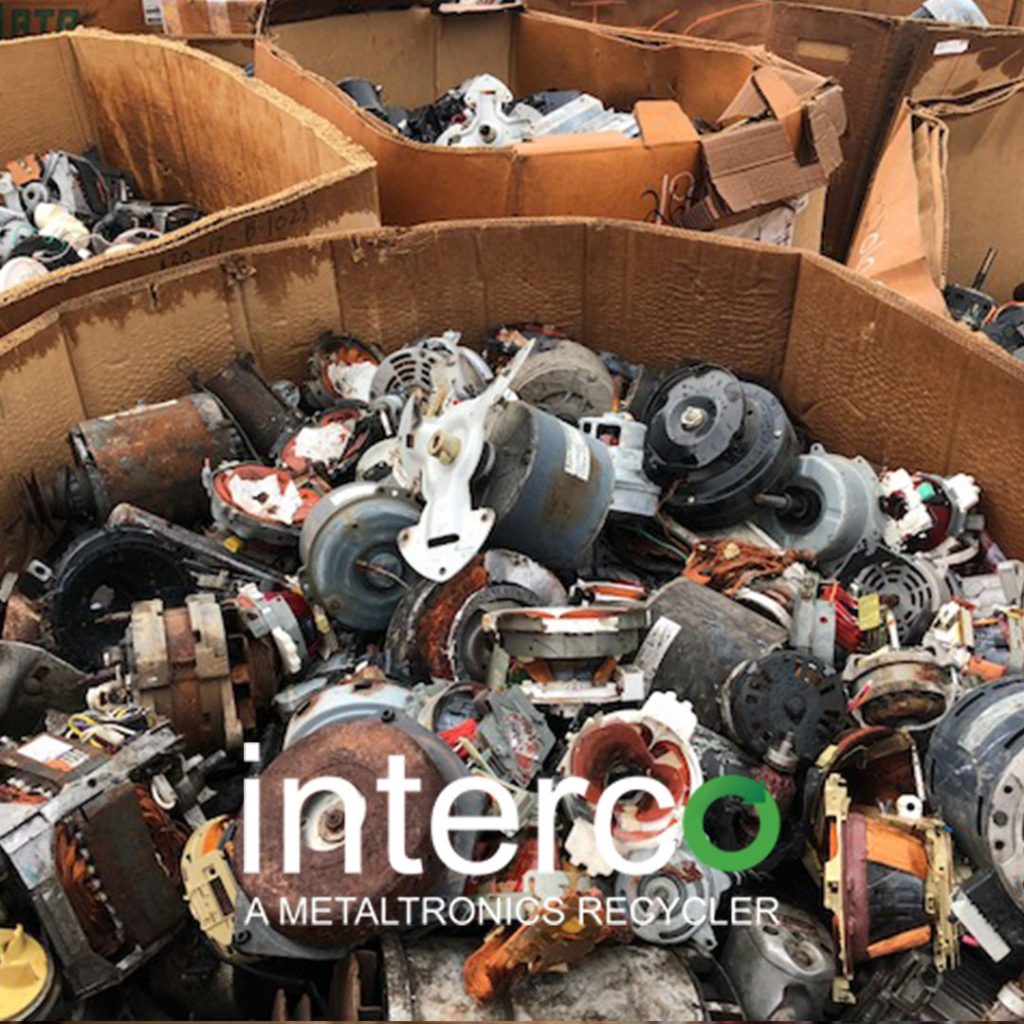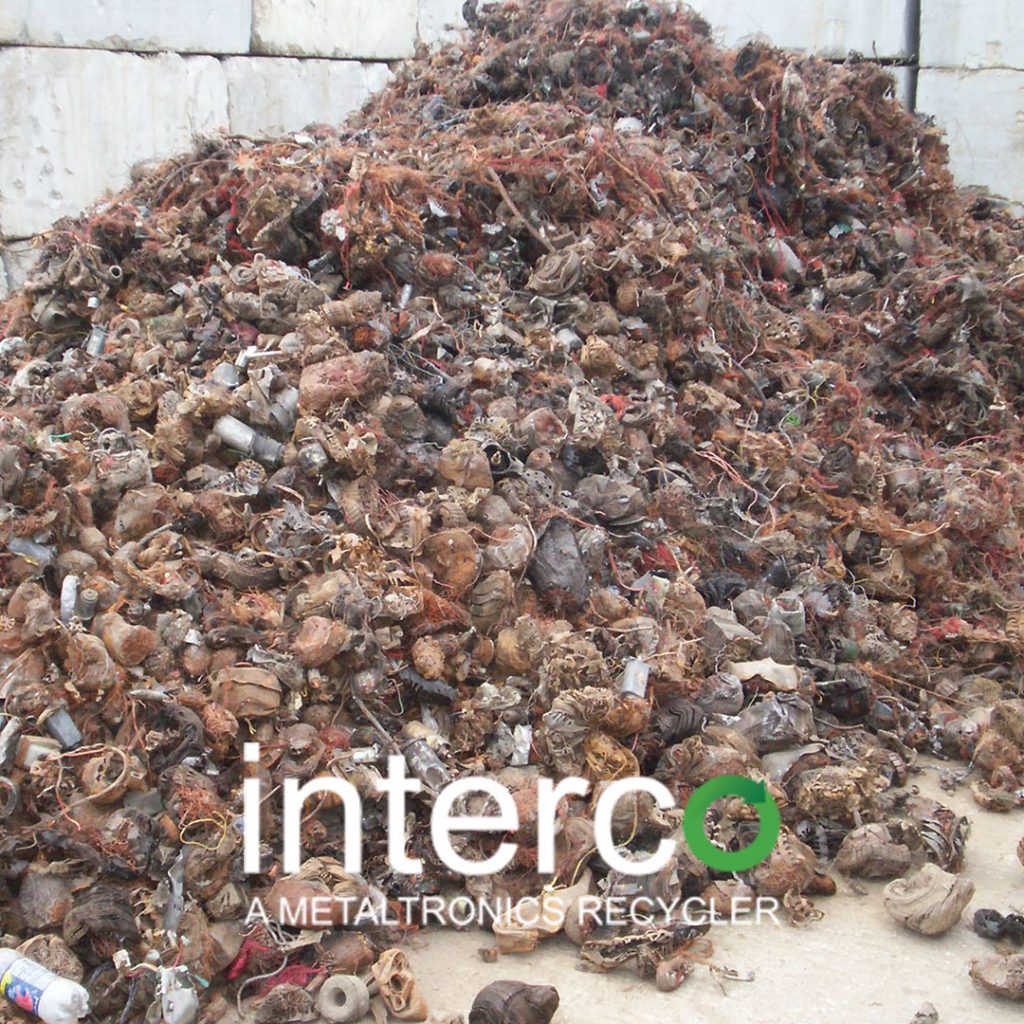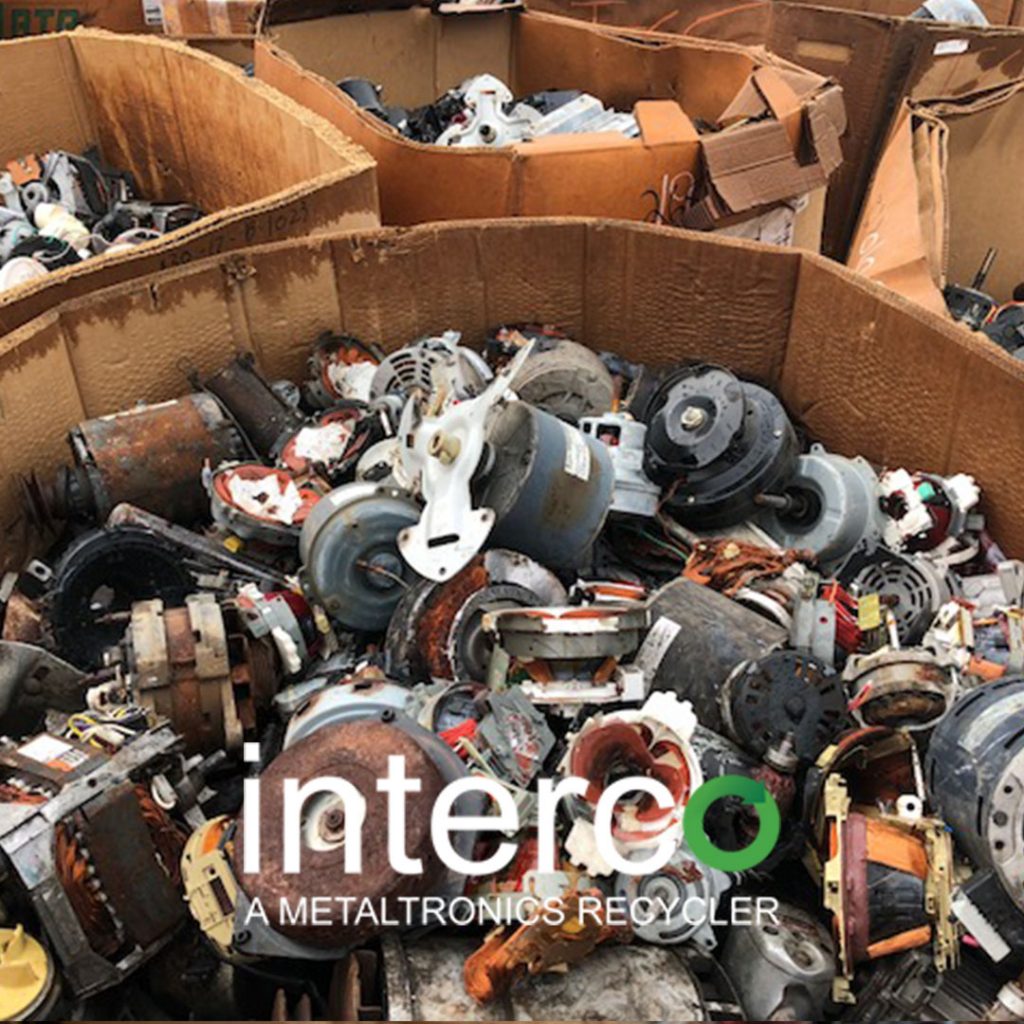
Recycling Electric Motors
Interco works with the resources and equipment to effectively recycle electric motors. Recycling electric motors is very common. In fact, scrap electric motors are fully recyclable and contain valuable metals.
An electric motor is an electrical machine that converts electrical energy into mechanical energy. Most motors comprise of valuable copper and aluminum components. However, the exterior of most motors is comprised of steel with a strong shell which protects the more fragile wiring and parts within.
Interco recycles numerous pounds of motors each year. As a result, recyclers categorize motors into three main categories of size:
- Small motors usually fit about the size of a basketball and not much larger than an apple.
- As a result, recyclers classify motors larger than a basketball, but less than 2,000 pounds as large motors.
- Motors weighing more than 2,000 pounds over-sized motors. These motors vary in demand due to their size and nonferrous metallic content.
Electric motors are made up of several components. These components include the shaft, copper windings, bearings, armature, stator, commutator, terminals, and case. The components all allow for the electric motor to successfully convert electrical energy into mechanical energy.
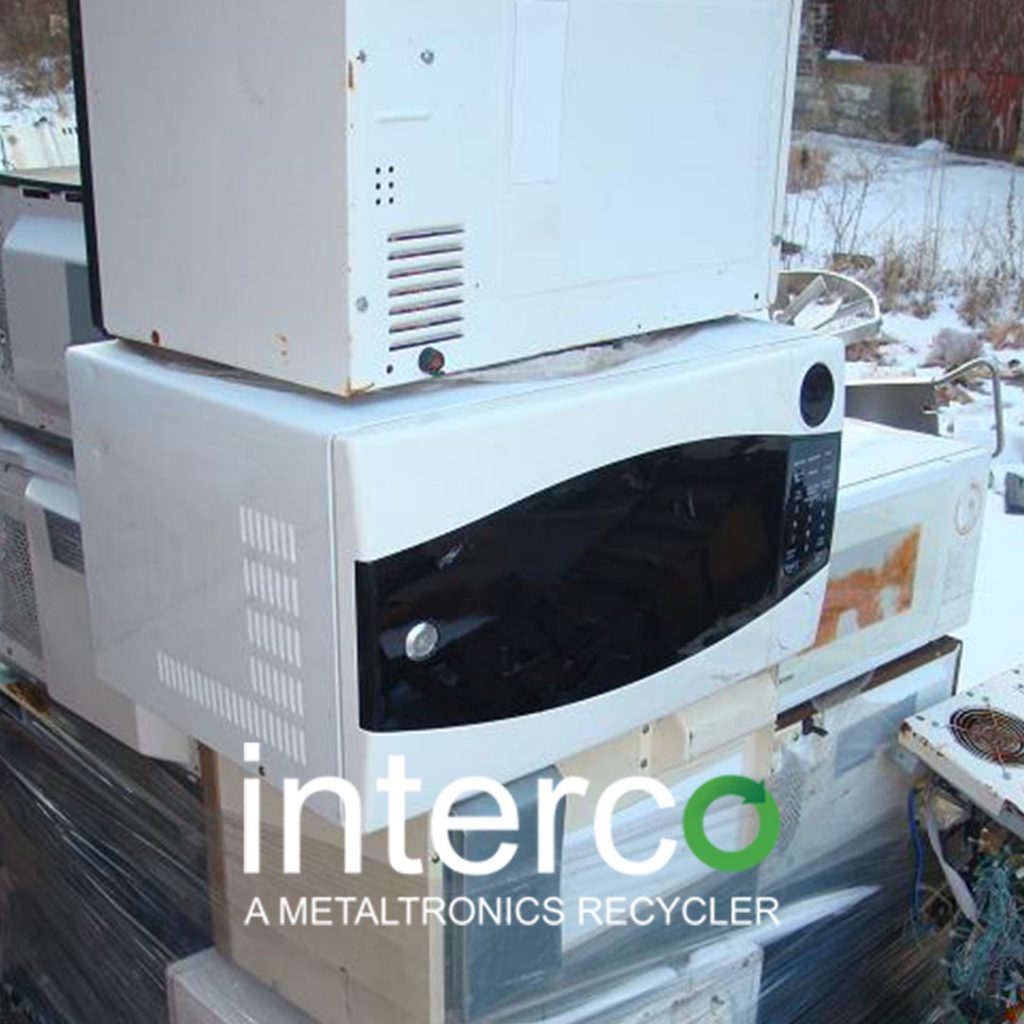
What Counts as an Electric Motor?
Common household items with electric motors include:
- Microwaves
- Hand Tools
- Air Conditioners
- Power Supplies
- Starters
- Washing Machines
- Computers
Common industrial items include:
- Transformers
- Pumps
- Machinery
- Manufacturing Equipment
Common automotive items include:
- Starters
- Alternators
- Generators
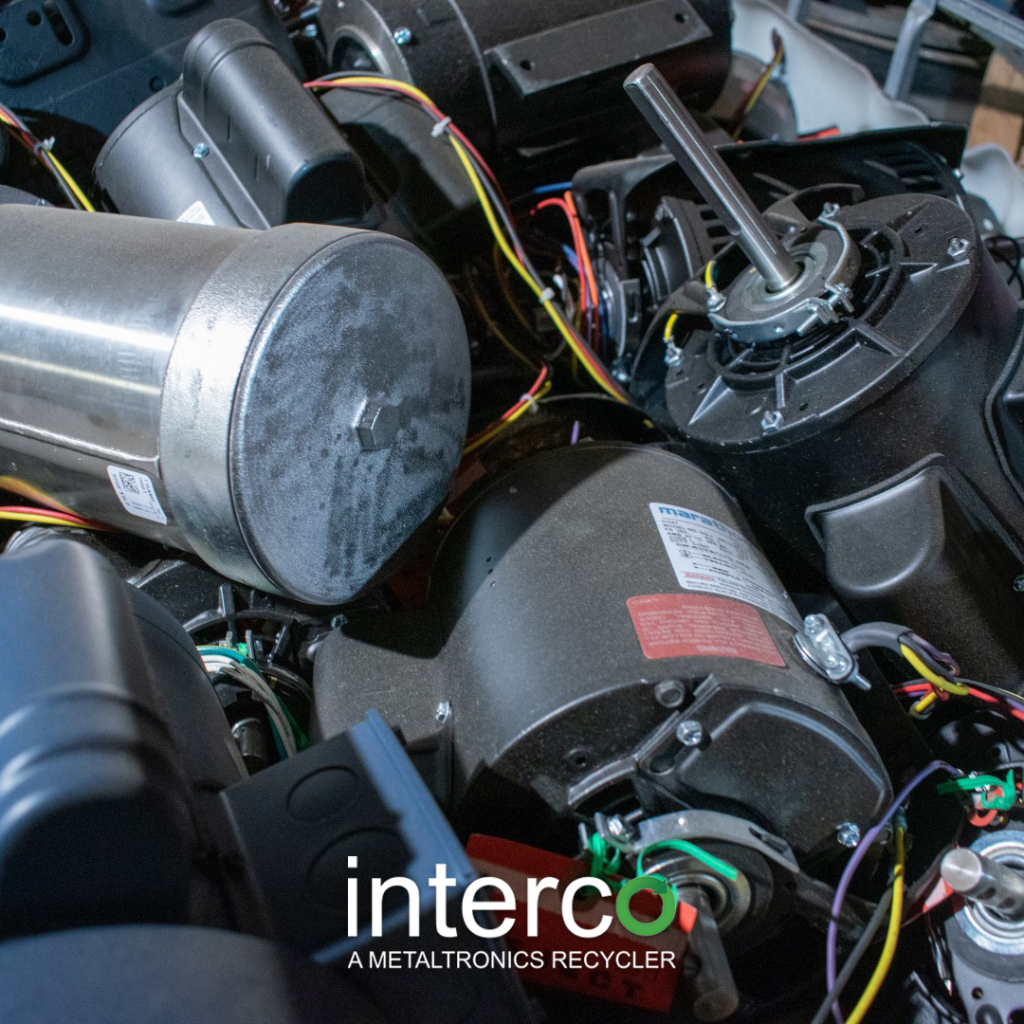
Why Recycle Electric Motors?
The electric motor is 100% recyclable since most of its components are metallic. Therefore, recycling electric motors helps protect natural resources and further prevents mining.
The valuable and recyclable metals include:
- Copper
- Aluminum
- Iron
- The steel case around the motor
Copper is especially valuable, expensive, and used in many electrical devices. Rather than depleting the natural resource, recycling electric motors is the opportunity to reuse the scrap metal. The more copper the more valuable an electric motor is to a recycler.
The next most valuable common nonferrous metal found in electric motors is aluminum.
Steel is also found in motors, more specifically, around them. Electric motors tend to have hard steel casings. Consequently, steel can be recycled, but steel does not share the value of copper or aluminum.
There are some other materials that can be found, like wood and plastic. But, since the presence of wood and plastic on electric motors is considered a contaminate, those motors contain lower value.
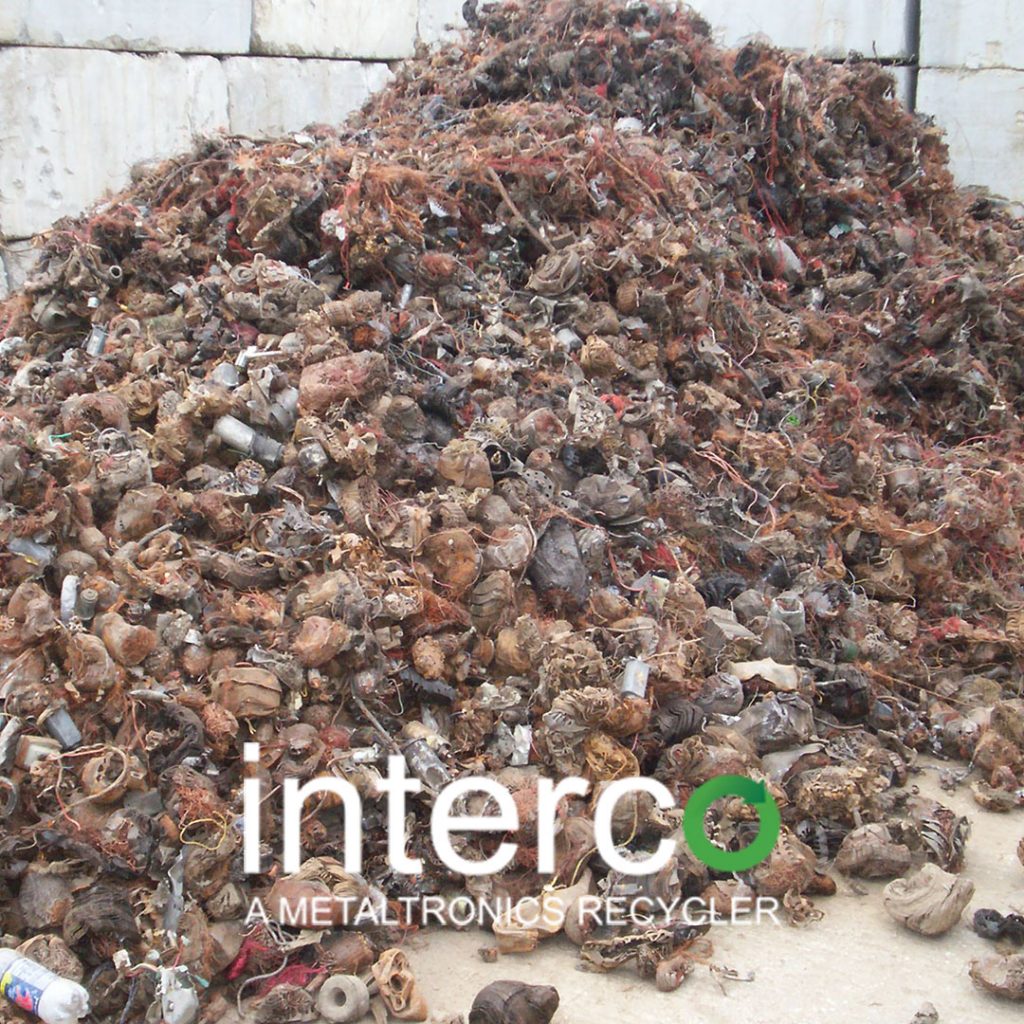
The Recycling Electric Motors Process
Scrap electric motors contain valuable and recyclable metals. These components make it necessary to recycle electric motors. The process of recycling electric motors is easy and efficient with Interco. The process of recycling electric motors should be performed properly.
- First, the recyclers collect several electric motors, as many as possible, to increase the possibility of getting enough copper.
- Next in the process, a hammer or hammering mill break the metallic casing of the motor.
- Then recyclers separate the components and group them according to their materials.
- Finally, in the recycling process, recyclers take the separated components to their different recycling points and recycle them.
While many people may think recycling is for common household items such as bottles, cans, and scrap metal, it is important to consider the components inside electric motors.
Recycle Electric Motors With Interco
Overall, an electric motor is an electrical machine that converts electrical energy into mechanical energy. Products like industrial fans, blowers, pumps, and more need electric motors to work. There are small, large, and over-sized motors that can be found in common items such as microwaves, hand tools, air conditioners and more. Electric motor recycling reuses valuable materials, reduces solid waste, reduces overall pollution and more. Interco buys scrap electric motors to recycle them properly.
To learn more about how to recycle electric motors, click here to get in touch with Interco.
